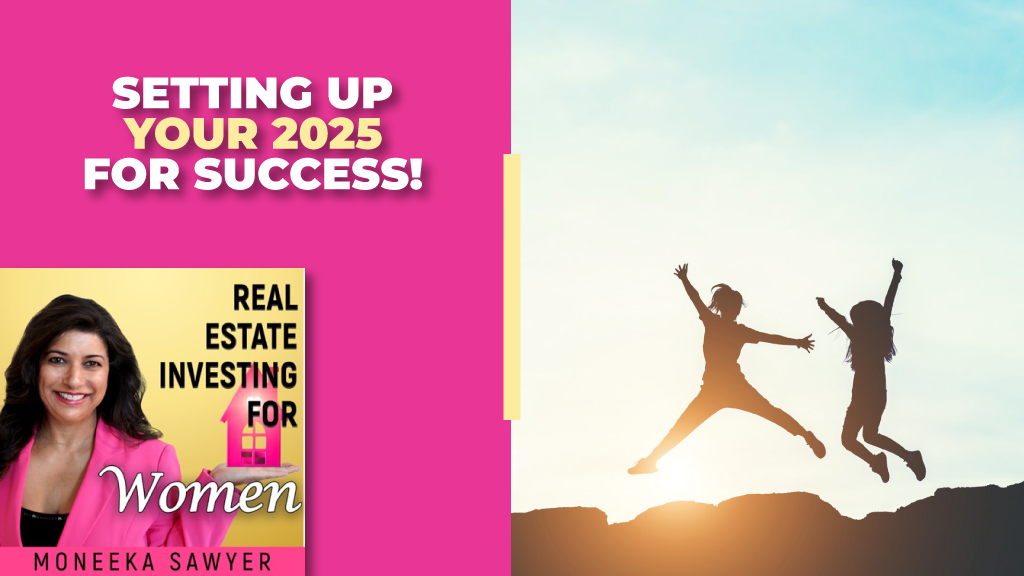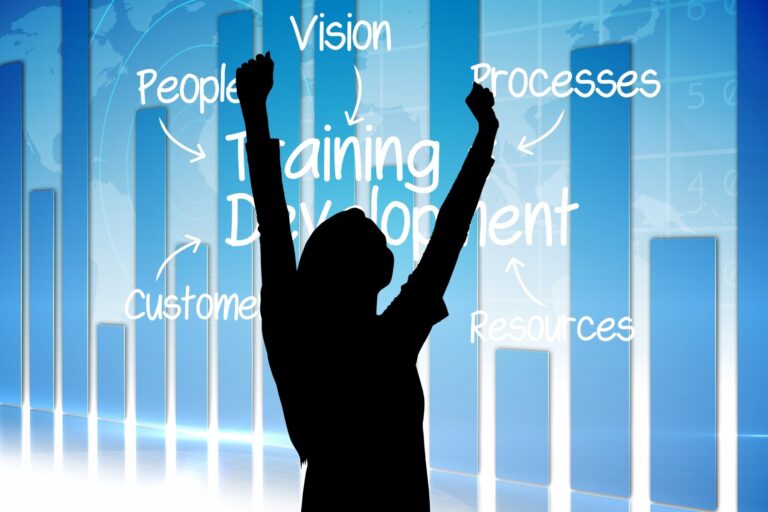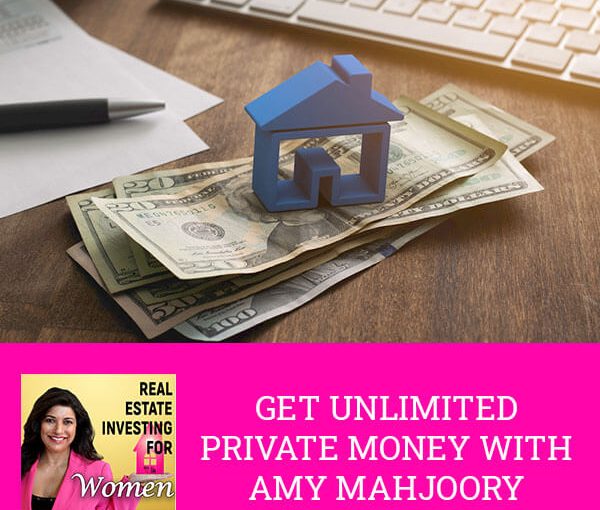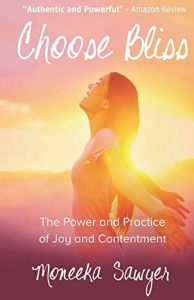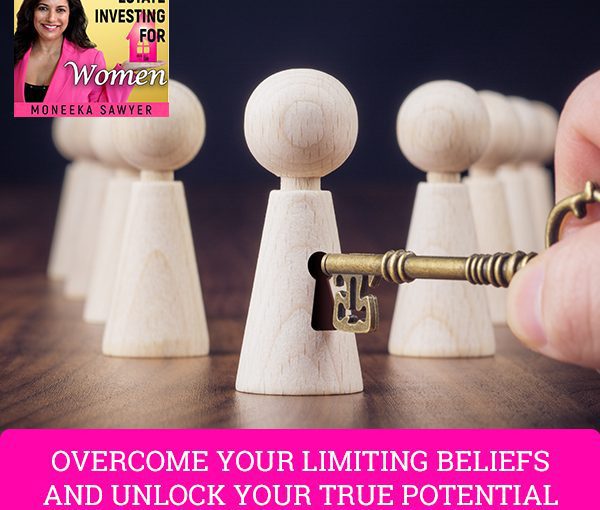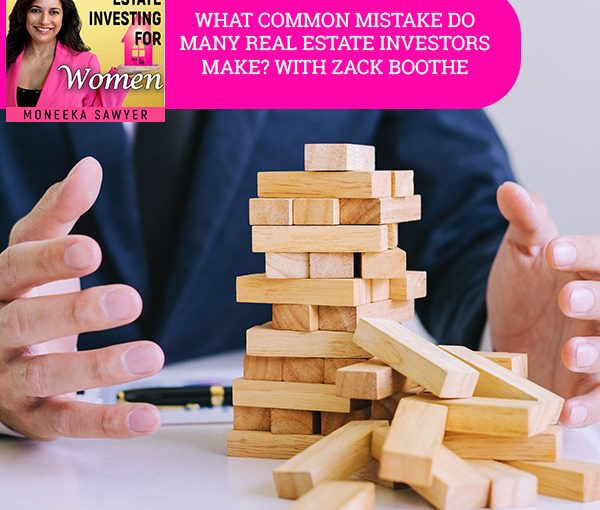Setting Up Your 2025 for Success!
Moneeka Sawyer is often described as one of the most blissful people you will ever meet. She has been investing in Real Estate for over 20 years, so has been through all the different cycles of the market. Still, she has turned $10,000 into over $5,000,000, working only 5-10 hours per MONTH with very little stress.
While building her multi-million dollar business, she has traveled to over 55 countries, dances every single day, supports causes that are important to her, and spends lots of time with her husband of over 20 years.
She is the international best-selling author of the multiple award-winning books “Choose Bliss: The Power and Practice of Joy and Contentment” and “Real Estate Investing for Women: Expert Conversations to Increase Wealth and Happiness the Blissful Way.”
Moneeka has been featured on stages including Carnegie Hall and Nasdaq, radio, podcasts such as Achieve Your Goals with Hal Elrod, and TV stations including ABC, CBS, FOX, and the CW, impacting over 150 million people.
Get Unlimited Private Money With Amy Mahjoory – Real Estate Women
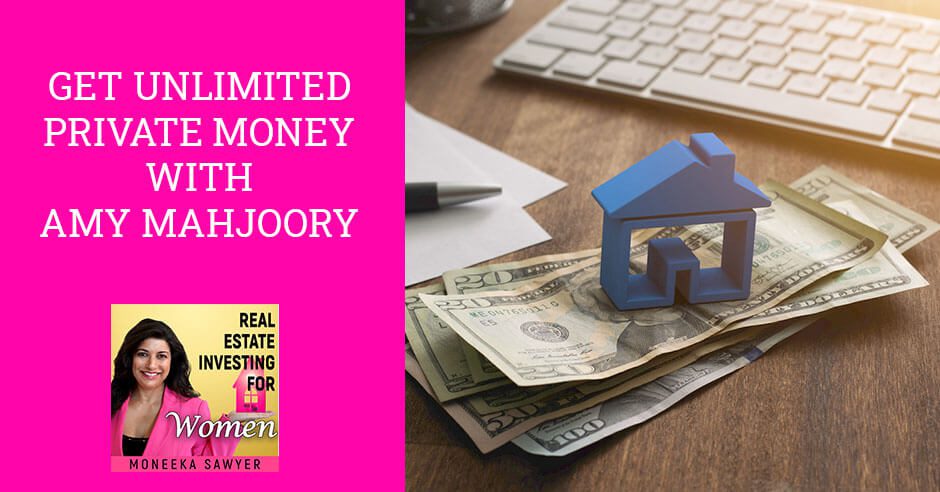
Raising capital is an important part of starting a business. And private money is one way to get your real estate investments financed. In this episode, we examine how as Moneeka Sawyer deep dives into raising money with real estate investor and educator, Amy Mahjoory. Amy has helped thousands of real estate investors with private money, walking us through each step. From building relationships to crafting your pitch, Amy lets us have a look at her process. Tune in and learn more about building a real estate business right here.
—
Watch the episode here
Listen to the podcast here
Get Unlimited Private Money With Amy Mahjoory – Real Estate Women
The Golden Rule For Raising Capital
I am excited to welcome to the show, Amy Mahjoory. She is a real estate investor and educator, HGTV personality, bestselling author, and keynote speaker. Her life didn’t start in real estate. After fourteen years in Corporate America, she had her fill working for other people. Although she was a highly recognized global leader in procurement, logistics, and operations management for Dell Computers, she decided that a traditional education combined with the false security of a 9:00 to 5:00 was not producing the results she wanted.
Real estate was the game-changer. She has been investing in real estate over the last several years. During that time, she has raised well over $20 million in private money. As a result of her immediate success, she went on to resign from her corporate job to pursue her passion for real estate. Shortly thereafter, she signed a contract with HGTV and began coaching real estate investors all over the country on the same creative rapport and trust-building strategies, systems and scripts that she still uses in her business now. Here is the best part, all of this can be done without having to depend on friends and family members for private money. This is her new passion and focus.
She helps her students transform their minds so that they can feel confident raising private money. She takes the fear out of raising capital and breaks her systems down into a methodical and easy-to-follow system. Her greatest achievements go beyond what she has accomplished herself. Many people become successful in real estate, but her talent is helping others become successful themselves. She has a genuine interest in helping others succeed. Most of her success originates from her streamlined operations and proven systems. She changes people’s lives. Amy, welcome to the show.
How are you? It’s great to be here with that warm welcome.
This is what I love about you. Your bio is so much more about what you’ve done for others. It’s not all about, “I’ve accomplished that,” because you’ve accomplished quite a lot. It’s pretty amazing. Thank you for that. Can you talk a little bit about your story? How did you transition from corporate to entrepreneurship?
Surround yourself with people on a similar path. Believe in yourself, and you will do great things.
My background is very traditional. Like many people out there, I was raised to go to school and get good grades, get a job at a secured stable company, and collect my paycheck for the next 25 years until I retired. The transition for me was easy because once I realized real estate was my new path, I had goals and was committed. I invested in coaching and mentorship. Where it became challenging was the lack of support from my friends and family members, specifically my dad. That’s a whole other conversation.
For me, I’m a product of the system. A lot of people out there can relate to similar situations and losing friendships along the way. It’s always like, “Perseverance will prevail. Keep your head down. Surround yourself with people who are on a similar path. Believe in yourself and you will do great things.” For me, it was an easy transition because I knew I was going to do it. I was committed to doing it.
Some people are committed but they second guess. I love the power of, “I’m committed, even if my dad doesn’t like it.” Many of us are influenced by our families. “People may not like it. It doesn’t matter. I’m doing it.”
Once you know your role and you’re confident in who you are and what you’re doing, it makes that decision-making process so much easier. At the end of the day, I still have to do what’s right for me and my family while respecting my dad, for example. That’s why I believe so much in coaching. The reason I had so much immediate success was because of my coach. If I didn’t know what I was doing, I worked at the corporate for fourteen years, but they helped me with that fast track to success which was cool.
Talk to me a little bit more about overcoming the roadblocks that maybe family and friends put in front of you. A lot of us women are susceptible to that and experience that.
The hard part for me was I’m very sensitive. I wear my heart on my sleeve and I don’t like disappointing my parents, even as an adult. I always seek out my parents’ approval. I want them to be proud of me. They are now. My dad is my biggest cheerleader now. It was very hard for me, more so losing my two best girlfriends during that transition because I was so excited and passionate. I know real estate can be a game-changer for everyone. That’s why I coach and preach it. They didn’t want to hear it. Until this day, I still believe that I drove them away from me.
It was very hard. I cried for years. Even when I speak on stage, I share this example and I get emotional. However, I’ve also learned that friendships are seasonal. People come in and out of our lives for a reason and their purpose was served. I made a bunch of amazing friendships along the way. I never expected my entire inner and outer circle now to be other real estate investors, entrepreneurs and business owners. Our girls’ trips are masterminds. Don’t get me wrong, I still have my OGs. We have fun and go out. It’s just different.
For me, it’s the same way. When I do ladies’ weekend away, we’re ten real estate investors and professionals in that industry. Not a single one of us is an agent. Just because you’re in real estate does not mean that you need to be an agent. I want to emphasize that again. There are a lot of people in the industry that do a lot of this stuff around what we do. It’s so interesting because I remember when I got started with this show, I’m so passionate about real estate anyways, but it’s always been my side hustle. This is what brought me into this fear of learning more about real estate, expanding my own influence, and also my own learning. That’s why I keep going because I learned so much.

Private Money: Once you know your role and are confident in who you are and what you’re doing, the decision-making process becomes much easier.
Suddenly, I’m having these real estate conversations with all my friends. That’s not what we used to talk about before. People are getting a little bit uncomfortable. I had several friends that were like, “I’m totally inspired by you. I’m going to go get my real estate agent license.” I’m like, “No, that’s not what we’re talking about. We’re not talking about getting another job and not investing and not growing your own wealth, and doing that for other people. We’re talking about this.”
Over and over again, “Don’t get your license. Don’t spend all your time on a license. Go get a mentor, learn to be an investor.” I lost so many friends because they got tired of hearing, “Don’t spend all your time and money becoming an agent,” because I was pretty bullheaded about it. I can see what happens when you spend all that time and money doing that. It does not grow your wealth and freedom. In a lot of cases, it takes away your freedom. Some people want to do that. That’s great, but that’s not the strategy for becoming an investor necessarily. I had the same experience, lots of nights crying because people dumped me.
It’s part of the process and journey. We’re going to have the highs, lows, wins, losses, make money and lose it all. I had this conversation with a girl who was at my LA event. She was like, “I’m going to go get my license,” and I was like, “Why?” She said, “Don’t I need to?” I’m like, “No. Don’t get your license.”
For those of you who may not already know this, there are so many ways where we can still generate referral fees and additional income without being a realtor by referring people to realtors. I always believe in working smarter, not harder. I’m not going to spend time getting a license when I don’t need it to list my own properties. I don’t want to list someone else’s properties because that’s another job to your point.
The other thing is once you have a license, you have to hang it. You’re legally obligated to hang it. You have an obligation now to a broker. That broker is going to have expectations. Every year, you have to do your education to renew and to get your hours. You have to renew your license every four years. It’s been a long time since I had my license, so these numbers may be different and they’re different in different states, but there’s a lot involved in that.
In California and a lot of states, you have to disclose that you’re a realtor, which means you often lose offers because people don’t trust a realtor-buyer sometimes. I found that to be the case for me too. It was a complete hindrance in my business and took all this time and energy. I want to work 4 to 10 hours a month. That was a lot more time and energy that was getting put into my business that wasn’t necessary. Talk to us about your transition to HGTV. How did that happen? What did that do for you?
I did have a goal when I first started to be on TV. I didn’t share it with many people. I wanted my own show. I was in the middle of hiring a virtual assistant. She was 21 years old. I was surprised when she asked me, “What are your short and long-term goals?” I was like, “Who is this girl?” I loved it and appreciated it. I ended up hiring her and I said, “One of my goals is to get on TV,” and by having a voice. I always talk about word of mouth going a very long way. She responds with, “My mom knows a producer at HGTV, would you like an introduction?”
I said, “What show?” She said, “House Hunters,” which many of us know that show. I respectfully declined her offer because I thought to myself, “I don’t want to be on House Hunters. I want my own show.” Two days later, I thought to myself, “Amy, what are you doing? You wrote a book on networking. Get your foot into the door with this lady and see what happens.” That’s what I did. I had a snowball effect. I hit it off. I was on House Hunters. We did a four-part mini-series, but it’s cool because they broke the mold with me.
Everyone you encounter is a prospective private money lender.
In the 12 or 15 years at that time that they had been filming, they had never had an investor on the show. They showed my transition out of Corporate America into real estate on the show. My contractor walked through projects before, during and after. That was cool and it was great for credibility. The relationships, I still have and cherish until this day. I realized I don’t want my own show because it is a lot of work and that’s not a priority for me anymore.
For a long time, I thought I wanted my own show and then I realized there’s this thing. Ladies, this is relevant to you too. How many times are you shooting for something because you think it would be cool? You’re afraid of missing out. You want to have that credibility and whatever it is in your life that you’re looking for that lifts you, but so much that we drive towards is not serving our core values or serving our dreams. This is something that I’m focusing on now on the backside of the pandemic where I’ve been sitting at home for two years. I’ve had so much time to think about, “What is it that makes my heart sing?”
Traveling and speaking, I was gone every single weekend. I remember the year before the pandemic, I was home for six weekends out of the entire year because I was traveling. I miss my husband, my little dog, my family and my life, but I was doing it because it was what was expected, it gave me more credibility, got my voice and message out there, and all of those things, but it wasn’t doing it in a way that supported the bliss of my own life.
As we move forward, I’ve realized, “No, I don’t want a television show. I don’t want to be working that hard. I want to be working hard on the things that are going to reach my goals and are aligned with my own core values and the things that make me happy.” I love that you mentioned that because we can have so many opportunities. Which ones do we choose?
I hear you talking and I hear myself. We were the exact same. That’s the only reason I wrote the book. I wrote this bestselling book because all my friends were writing a book and I’m like, “That’s the next thing to do. I got to beat my friends. I got to be bigger and better.” Now, I love what I do and it’s the only thing I want to do. I’ve cut back on speaking and all these other things. I don’t care anymore. I want to do genuinely what makes me happy, but I also treat it as a business and capitalize on it. How do we do that?
Talk about what you do.
I never thought I would be a nationwide coach showing other investors all over the country how to raise private money. That’s what I do now. I was a leader at Dell, but I was never a manager of people. I was always an individual contributor. When I got into real estate, I never thought I would be hiring a team of twenty people and getting on stage and being on TV. I was super shy growing up. For the first eight years of my real estate career, investors kept saying, “How did you raise all this capital? You must have asked your friends and family.” I was like, “No, it’s the opposite because I’m so stubborn.”
Once they heard that out, they were like, “What list did you buy?” I have never bought a list to target private money lenders. If you have, great. I would love to hear how your experience was. I launched a coaching program a few years ago, once my daughter turned one because I wanted to be a soccer mom. Now, I get to still stay connected with investors all over the country from the comfort of my own home while changing their lives and showing them how to raise capital to get 100% funding for their deals. That’s my main focus now. I’m still an active investor so is my husband, commercial, residential and all that stuff, but now I’m a coach myself and it’s on one topic.

Private Money: We just want to do what genuinely makes us happy, but also treat it as a business and capitalize off it.
The topic that you focus on specifically is private money. I want you to dive a little bit deeper because the very first time that you and I connected, everything you said was like magic. I was like, “That’s so cool.” That’s why I wanted to bring you on. Tell us a little bit more about the private money angle. I know that the way that you approach it is different. You’re not going after friends and family. At least, in the beginning, you opted out of that.
I still don’t because I’m stubborn. If you guys get out there and you listen to podcasts and read books, you take other coaching programs, the majority, if not every real estate educator out there will say, “Raising capital is easy. Go ask your friends and family members.” What if you don’t want to? What if they’re not supportive? What if they’re not in a position to invest? How do we get out there and build rapport and trust with strangers?
I’m talking about your Uber driver, cashiers at a grocery store, people at airports, church communities, sporting events, happy hour, anyone and everyone you encounter is a perspective private money lender. How do we make those mindset shifts? Start planting seeds to open up those conversations to coffee talks where you get them to ultimately invest with you. What I teach is raising capital from people who aren’t even a part of your inner circle. I have students who want to target their friends and family members, and I show them how to have those conversations as well.
I have taken her online course. It’s phenomenal. Ladies, you know that I will not recommend a course unless I’ve vetted and liked it. Many of you asked me, “Moneeka, if you’re only working 4 to 10 hours a month on your real estate business, what’s all this other time? Why are you always so busy?” First of all, this show takes a huge amount of my time because I want it to be the very best for you, but the other thing is I will not recommend anything to you that I have not been through myself.
I take a lot of coursework, not that I need it. I’m not doing this for me. I’ve got my business, but I do love to learn and I do want to get to know the people that I am doing business and partnering with, so I vet their courses. Over the last few years, I’ve vetted twenty courses and only two that I have recommended. It’s a lot of work that goes into that. I’ve never shared this before, but this is what I do. If I’m going to recommend it to you, I’ve been through it or one of you have been through it.
I meet with some of you and you tell me, “I have this great coach. I’ve got a great program.” That’s how I met Mark Willis. Someone else recommended him to me because they loved working with him. You’ve heard from him a few times. A lot of it is recommendations and coursework. Many times, I’ve done the investing with them before I’ll recommend them. I don’t vet everybody that’s on the show and that we do courses for, but I will tell you if I’ve gone through their coursework and I have with Amy. That allows you to feel a little bit more comfortable about the recommendation. I do want to be clear, I don’t vet everybody on the show.
Some of the people out there who know me or many of you who may not know me, I’m raw, real and direct. I’m very approachable and easy to talk to. I am not scripted. It’s a proven system. It’s stuff that I’ve been doing for many years. I’m tested and fine-tuned. If you are coachable and can follow steps, I’ll hand you everything you need on a silver platter, “Do this, call this person, say that. Call me back when they do this.” You will have success and can raise unlimited capital if that’s aligned with your goals. All of our goals are different.
Having money is a good problem to have.
It’s cool because, with private money, there are endless opportunities. You don’t have to flip or wholesale. Buy five rental properties tomorrow with private money. Start a fund and invest in commercial syndication. Invest in a multifamily deal. There is so much we can do. I’ve got mortgage brokers and realtors who learn how to raise capital because all they want to do is generate referral fees for their investor clients. Having money is a good problem to have. Let’s educate people on why they should invest with us.
Do you find that when you raise the money, you should have some idea of where it’s going to go before you raise the money? They’re excited about giving you money and then you stalled.
The answer is no, we do not need to have a deal right now. We don’t want to wait until we have a deal. For those of you who are looking for a deal, whatever your strategy is, we want to be looking for deals and raising money at the same time. Even though I’m telling you that you’re going to raise money from your Uber driver, which is what I did and what you can do as well, it is rapport-based lending. We’re building a relationship and developing trust. You can do this in as little as three weeks, but you don’t want to wait until you have a property under contract. You want to be proactive in that skillset.
You’ve told us a little bit about what makes your course different. You’re talking about not going to friends and family, and doing the fundraise simultaneously. There are some other special things about your course.
I know a lot of big and small name educators out there and nobody teaches private money the way I do. No one teaches how to get creative and think outside the box. I have over 54 different creative trust and rapport-building strategies scripts and templates. My course is a done for you system. I give you all twelve of my credibility pieces, all my contracts, and my list of FAQs. What’s cool about the program is the online portion is eight different modules. Each module is built upon the previous one. In order to have success, you want to come and watch the videos, and do the action items in order of priority because it all means to one another.
I don’t guarantee success and I never will. I have a 90-day money-back guarantee because I can and it works if you follow the system. What’s also unique about my program is I give you lifelong access. Not just to your online curriculum which I’m also fine-tuning and tweaking because I’m still an active investor, but you get lifelong coaching with me that does not expire. I’m not going to call you six months later and be like, “Your coaching is expired. Would you like to reinvest?” That’s it. One investment, lifetime access. It’s a no-brainer.
It’s unheard of. While we’re talking about the course and since you ladies already know a little bit about it, Amy and I are doing a few things together for you. We want to do a webinar. We’re calling the webinar Grow and Scale Your Real Estate Empire with Private Money. We’re going to be doing that together so you can meet Amy, ask questions live, and all of that stuff. If you want to join us, go to BlissfulInvestor.com/PMWebinar. The webinar is going to be held on Thursday, April 7th, 2022 from 1:00 to 2:30 Pacific time. Let’s talk about that a little bit more. What are we going to be covering, then I’ll talk more about the coursework.
My webinars are pretty insightful and eye-opening. People are walking away mind blown, which is cool. We have plenty of time in the end for Q and A so I got you. I always keep it simple and to the point. I always focus on three things. Number one, what is private money? Who are we targeting? Who aren’t we targeting? Where is it? Number three, how do we obtain it? How do we get our hands on it?

Private Money: Follow proven systems, be coachable, and you will have success.
When you understand all three of those points, you can obtain 100% funding for your deals moving forward. This is regardless of your experience, credit, and whether or not you’re doing this part-time or full-time. None of that matters. Follow these proven systems, be coachable, and you will have success. We’ll get into some of those strategies during the webinars, so make sure you guys attend.
Grow and Scale Your Real Estate Empire with Private Money, Thursday, April 7th, 2022, 1:00 to 2:30. Go to BlissfulInvestor.com/PMWebinar. Some of you may be like, “I’m all-in. I want to do the course,” join us for the webinar also. If you want to do that, Amy’s already shared a little bit about the coursework. Do you want to give us a few more details before I give them some links?
One of the first things I have my students do is start building our foundation and getting ready to raise capital as early as module one. One of the key takeaways from module one is what I refer to as our Four-Second Power Pitch. In four seconds, you are going to explain to anyone and everyone, the minute you leave your house, who you are and what you do by dangling that carrot and getting them to ask you more questions about it.
The Four-Second Power Pitch is how I got Larry, a retired physician who was my Uber driver to become my money lender. That’s going to be step one. As we build our foundation, and there are a lot of things that go with building a foundation, how do we start to take action? It’s with your Four-Second Power Pitch. The minute you leave your house, anyone you encounter is a prospective private money lender. What do you say? It’s your Four-Second Power Pitch.
For our ladies that are subscribed to EXTRA, she’s going to give us a Four-Second Power Pitch in EXTRA. In that first module, she’ll be covering that. That’s the foundational building block. That’s where we start. From there, there’s a world of information in the course.
That’s opening up the door to having ongoing conversations with each of your private money lenders. Step two is, how do we take action? How do we find the people to book these coffee talks with? At these coffee talks, what do we even say to them? That’s going to get into all your credibility pieces and all the content that I give you. Don’t worry about what that looks like.
If you are in and ready to go, you can get her course. Go to BlissfulInvestor.com/PrivateMoney. That’s for the full-pay option. Her courses are insanely inexpensive. I can’t believe that she offers all this information for this little amount. It’s a good deal. If you can’t make the full payments right away, you want to do a payment plan, she offers that. She wants to make sure that everybody can get the advantages of this coursework. If you want to do a payment plan, go to BlissfulInvestor.com/PrivateMoneyEasy. Is there anything else you wanted to add?
I don’t think so. It’s a lot of fun. It’s a tight-knit community. It’s like a family. We got each other’s backs. A lot of us develop friendships and end up hanging out outside of our work and coaching environment, but you think about what if you could raise six figures in as little as 21 days. If you can raise six figures, how much more can you raise? What would your business and life look like?
You never know who you’re talking to. You never know who is standing in front of you. Be respectful, and follow the golden rule.
You can sit out there and go read a bunch of books and listen to a hundred podcasts, but why not leverage from my years of experience, lessons learned and mistakes? Stop posting desperately on Facebook groups. I see this all the time. Get the system in place and position yourself as a polished professional poised for aggressive growth. Get out there and do everything you’ve ever dreamed of when it comes to growing your real estate business. You can do it.
That’s the thing. Us real estate investors, what is it that we love? Leverage. Leverage when we’re purchasing and other people’s information. I love that you said it that way. Leverage her years of experience to fast-track yourself. Thank you so much for all that you offered in this part of the show.
It was great being here. Thank you so much for the opportunity to chat with you and your audience. I look forward to coming back.
We got more on EXTRA but before we move on to that, let’s talk about our three Rapid-fire questions. The first one is, what is the super tip on getting started investing in real estate?
Number one is to commit to it and decide that, whether or not it’s for you. Commit and then set your goals up.
What is number two? What is the strategy for being successful in real estate investing?
Once we have our goal, because thoughts expand, number two is to get after it. Get out there and take action. For example, take my Four-Second Power Pitch and start implementing it every single day. Practice it at home. Don’t just sit there and talk about it and do it. That’s why I could do a lot of these implementation workshops. We can sit here and talk about it and take a bunch of notes that you’re going to throw in the garbage, or we can meet up live and start taking action and see results. Just do it.
What is one daily practice that you use that you would say contributes to your personal success?
For me, it was treating anyone and everyone I encounter the minute I leave my house as an equal and specifically private money lender. I have struggled in the past with anger management. I had an anger management journal. I had a very low tolerance for poor customer service regardless of the industry. I’m comfortable saying no. I would go off on people. I would be rude to them if they were rude back.

Private Money: Anyone and everyone you encounter, treat them as equals or better yet, target them as private money lenders.
Once I decided to commit to being a real estate investor and a business owner, I said to myself, “You can’t talk to people this way. You never know who you’re talking to. You never know who is standing in front of you.” Be respectful, the golden rule from here on out. Anyone and everyone you encounter, treat them as equal and better yet, target them as private money lenders. How do you do that? My Four-Second Power Pitch. Everything is very closely linked to one another.
One of the things is that how we do anything is how we do everything. If you have to improve yourself or your business, you’re improving yourself for your life. That’s what blissful investing is all about. It’s who are you getting to become as you’re building your wealth because that’s the person that you are going to be when you’re wealthy. As you improve yourself, you’re treating people with a little bit more respect or a lot more respect whatever. That’s going to show up in every area of your life.
It’s going to show up in how you bring up your children. Our businesses help us to grow. They help us to become a better version of ourselves. I love that example. Nobody has ever admitted something like that on this show but it’s so amazing. Being vulnerable and allowing people to see that we all grow is a perfect example of that.
Thank you. I had a therapy session. I got personal and professional coaches. I’m like all of you. I’m still an investor and a student. All I’m doing with you is sharing the secrets behind some of my success. I’ve had plenty of failures too. What you choose to do with it is on you. I invite you to consider taking action, invest in coaching whether it’s with me or someone else, and start seeing results sooner than later.
Join us for our webinar. You can get to know Amy more. I always love meeting with you, Ladies. I’m trying to do this once a month. It’s like a community. Let’s get together. Several of you come to every single webinar, so I’m getting to know you. I’m loving that. Again, it’s on Thursday, April 7th, 2022 from 1:00 to 2:30 Pacific time, go to BlissfulInvestor.com/PMWebinar. Come join us for that. We’ve got more.
Stay tuned for EXTRA. We’re going to be talking about the Four-Second Power Pitch. You get that for free if you are subscribed to EXTRA. If you’re not subscribed to EXTRA, but would like to be, this might be the time. Go to RealEstateInvestingForWomenEXTRA.com. You get the first seven days for free. For those of you that are leaving Amy and me now, thank you so much for joining us. I always love spending time with you and I look forward to next time. Until then, remember, goals without action are just dreams. Get out there, take action, and create the life your heart deeply desires. I’ll see you soon.
Important Links
- Amy Mahjoory
- BlissfulInvestor.com/PMWebinar
- BlissfulInvestor.com/PrivateMoney
- BlissfulInvestor.com/PrivateMoneyEasy
- RealEstateInvestingForWomenEXTRA.com
About Amy Mahjoory
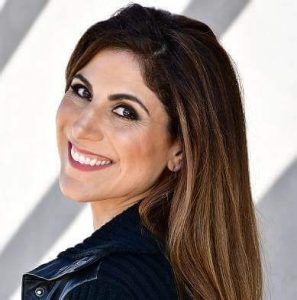 I’m a Real Estate Investor & Educator, Best Selling Author, HGTV Personality & Keynote Speaker who built my business by Networking w/ A Purpose!
I’m a Real Estate Investor & Educator, Best Selling Author, HGTV Personality & Keynote Speaker who built my business by Networking w/ A Purpose!
I am lucky to be able to travel the country, doing what I want – when I want, with who I want.
After building multiple businesses and through many lessons learned, I am able to enjoy my time coaching and mentoring real estate investors all over the country on how they too can grow and scale their real estate business by CONFIDENTLY raising private money!
The most important concept I teach is that with the right attitude, anything is possible.
I was born and raised in the midwest in one of the tightest families you’ll ever meet!
My mom and her two sisters married my dad and his two brothers before immigrating to America and no, none of it was arranged. They decided to buy homes within three miles of one another which is where they raised all of us! Although I technically have one brother, I always say that I am one of seven since I have five double cousins, we all look the same and we grew up within three miles of one another.
After attending undergrad at Michigan State University, I moved away from home for the first time to Austin, Texas where I landed a job working for Dell Inc. After working in Corporate America for over fourteen years, I was doing well, but felt like my true potential was elsewhere. I was completely burnt out and had no passion for the work I was doing. I knew I needed a change.
During my spare time, I was glued to all of those home renovation shows. I absolutely loved the idea of taking an old dumpy house and turning it into something new and modern!
Although it may have sounded a bit ambitious and even unrealistic, especially since I had no previous knowledge of the real estate market, my mind was set! I was on a brand new mission prepared to learn how I too could learn how to buy, renovate and then sell distressed properties.
In my hunt for quality real estate investing education, I found mentors Than Merrill, Paul Esajian and JD Esajian from A&E’s hit TV show, Flip This House. With their ongoing support, guidance and trust, my very first company was born.
______________________________________
To listen to the EXTRA portion of this show go to RealEstateInvestingForWomenExtra.com
To see this program in video:
Search on Roku for Real Estate Investing 4 Women or go to this link: https://blissfulinvestor.com/biroku
On YouTube go to Real Estate Investing for Women
Moneeka Sawyer is often described as one of the most blissful people you will ever meet. She has been investing in Real Estate for over 20 years, so has been through all the different cycles of the market. Still, she has turned $10,000 into over $5,000,000, working only 5-10 hours per MONTH with very little stress.
While building her multi-million dollar business, she has traveled to over 55 countries, dances every single day, supports causes that are important to her, and spends lots of time with her husband of over 20 years.
She is the international best-selling author of the multiple award-winning books “Choose Bliss: The Power and Practice of Joy and Contentment” and “Real Estate Investing for Women: Expert Conversations to Increase Wealth and Happiness the Blissful Way.”
Moneeka has been featured on stages including Carnegie Hall and Nasdaq, radio, podcasts such as Achieve Your Goals with Hal Elrod, and TV stations including ABC, CBS, FOX, and the CW, impacting over 150 million people.
Can Money Buy Happiness With Hal Elrod – Real Estate For Women

Can money buy you happiness? People need money to operate. There are a lot of important things you need to do but without money, you can’t do it. How can you find true happiness in your life? Learn more with Hal Elrod and Moneeka Sawyer as they talk all about bliss. Discover how to be blissful at the moment. Find out whether money is the root of all evil. And, know more about Moneeka’s book Choose Bliss. Listen to this episode and understand how to be confident in anything you do.
—
Watch the episode here
Listen to the podcast here
Can Money Buy Happiness With Hal Elrod
Real Estate Investing For Women
Welcome to February of 2022. How has this year been going for you so far? I felt blissful in this transition from 2021 to 2022. I feel like there has been this slow roll into the new year. Normally, the new year feels frenzy to me. There’s a lot of that masculine go-getter energy that we get. I love the go-getter energy. That’s not a criticism. It feels a bit spastic and forced in the new year. There’s a random date that people feel they have suddenly got to get all these new year’s resolutions and do all this new stuff. It’s not realistic. It’s not based on what their true ambitions are. It’s this contrived idea of who we are supposed to be in the new year.
I have been trying not to do that over the many past years. What is interesting is that if we have that global energy, we all get swept in it too. Whether we in our own lives do it or not, that energy is still there. It impacts and influences us. What is fun this year is that I have felt the slow, gentle flow, like the flow of a river into this new year. I loved it. Surprisingly, I feel like I have been more productive in January of this year than ever before because it feels so natural like it’s where I’m supposed to be. I hope that you guys are feeling that same energy. I’m feeling that globally. I hope you are feeling it too. I hope that so far, your year has been amazing.
As we move forward, I wanted to share with you a show that I did a while ago with Hal Elrod. He is the author of The Miracle Morning. I know many of you love that episode. I got great responses. I was also on his show and we talked about, “Can money buy happiness?” which is the ultimate question I get all the time. People are like, “Moneeka, do you think that money can buy you bliss?” I have got all sorts of responses to that.
I thought it might be fun for you to read Hal and I talk about this and our meeting of minds on this and also the places where we don’t necessarily agree. It was a great conversation. Hal’s podcast is called Achieve Your Goals. I thought it was appropriate to be talking about goals and how money impacts those goals early in the year as we are moving into this year. I hope you enjoy this show as much as I enjoy doing it. Hal is fascinating. I love him and I hope you love him too. Enjoy the show.
—
In the show, we interview successful individuals. Success and successful are two words that are loaded words. I want you to define what success is for you. Is it happiness, health, financial freedom, the impact you make in the world, the legacy you leave or all of the above? For me, success is all of the above and then more that I didn’t even mention. We are going to approach success in a different way. If I was summing it up in one word, success in the context of this conversation that you are about to read with Moneeka Sawyer, in one word, success is bliss.
Moneeka Sawyer is often described as one of the most blissful people you will ever meet. She is a real estate investor. That is her profession and trade. She has been doing that for many years. In the last couple of years, as you can imagine, if you have paid attention to the real estate market, I know mine when it crashed in 2008. That was the lowest point in my life where The Miracle Morning was born from that adversity. She has seen it all. She has been through all the different cycles of the market. She turned $10,000 that she started with into over $2 million. It’s part of the bliss for her. She is working only 5 to 10 hours per month with very little stress. We will talk more about this.
I always say, “In life, you can be stressed out or blissed out.” I say that from the stage all the time. I also say, “It has nothing to do or very little to do with what is going on around you and everything to do with what is going on inside of you.” While Moneeka was building her multimillion-dollar business, she has traveled to over 55 countries. She dances every single day. It’s part of her bliss. She has spent lots of time with her husband for many years.
She is also the international bestselling author of the multiple-award-winning book, Choose Bliss: The Power and Practice of Joy and Contentment. She is the Host of the show Real Estate Investing For Women. I was on her show and she laughs a lot. She is happy and healthy. She has been featured on stages, radio, podcasts and TV stations, including ABC, CBS, Fox and The CW, impacting over 100 million people. We are going to make it 101 million-plus people as you read this show. Moneeka, welcome to the show.
Hal, thank you so much for having me.
In life, you can be stressed out or blissed out and it has more to do with what’s inside you than around you.
You are welcome. It’s a pleasure. I was on your show a while back. Occasionally, I’m on a show and I love the energy so much of the host that I go, “Will you come on my show? Will you bring that laugh, bliss and message that you have to the Achieve Your Goals readers?” I’m grateful that you are here. It’s a word list that is so rich with meaning. I want to ask you for your definition. A lot of people ask me when I’m on their show, “How do you define a miracle? That’s a loaded word.” Bliss is a mysterious word and maybe loaded. What is bliss as you define it, Moneeka?
Bliss is not just being happy. It’s a much deeper sense of joy, contentment and absolute confidence that you can handle anything that comes your way. It’s all about emotional mastery and emotional resilience. This is one of the things we connected on also on my show. I always say, “You can’t control what happens on the outside but you must control what happens on the inside.”
It sounds like you and I are pretty like-minded. I like that. They say there are no new ideas. I have been studying metaphysics a lot lately. I have been studying the collective field of consciousness. It’s interesting that I often will talk to somebody like you or read a book. I’m sure you experienced this when you were reading something. You have an idea that you feel is an original idea that you have never heard of and then you realize, “That was in Think and Grow Rich 100 years ago. That was in the Bible.”
It’s the collective field of consciousness of intelligence that we can all tap into if we want to. Bliss is happiness and joy. You talked about emotional resilience and emotional mastery and what happens inside of you versus what happens outside of you. It’s that old phrase, “They practically wrote the book on this. No, you wrote the book on this.” You wrote the book, Choose Bliss. How did you come to this idea of bliss?
I was born in a part of America where I was the only person in school that was not White. Due to that, as a young girl, I was bullied, humiliated and tormented constantly. I learned early in life that life was hard, that people weren’t going to like me and that I was all alone. You can imagine that’s not a blissful or happy place to be. As I grew up, the torment became much worse. It got violent and there were some horrible things that happened that boys do to girls.
After all of that, I was in a car accident where I was sitting at a red light. A guy was going 50 miles an hour and smacked me from behind. I became a cripple and was told that I was never going to walk again. That’s not horrifying enough but what you don’t know is that I had been dancing since I was three years old. My deepest dream was to become a professional dancer and now here I was with no legs.
I know that you can relate to this story. I went through this period of, “I’m not going to be in a chair. I’m not just going to walk again. I’m going to dance and compete again.” I went after it. I saw the right doctors. This was in the years when there was no real holistic healing. I still would see a chiropractor, acupuncturist and all these healers but it never got better.
What age was the accident?
I was 21. Things weren’t getting better. The pain was still completely overwhelming. As I realized that things were not getting better about a year in, I started to feel hopeless like, “I can’t see the light at the end of the tunnel. It’s not getting better. I’m not able to find my path.” I started to fall into a very deep depression. I remember it had been about a year of me sinking down this hole where I was still in so much pain. One day, I had been in bed for about a week and crying. I had the covers pulled over my head. I don’t know if anybody else can relate to this. I’m so depressed.

Can Money Buy Happiness: Bliss is not just being happy. It’s a much deeper sense of joy and contentment. It’s the absolute confidence that you can handle anything that comes your way.
I woke up this one morning and heard my mom’s voice in my head. She said, “Get out of bed and go get some air. You will feel better.” I said, “Thanks, mom.” I pushed the covers off my head and swung my legs around to get out of bed. As I tried to stand up, I fell to the ground because my legs were too weak to hold me. I sat there on the ground. I pushed myself up against my bed and cried. At that moment, I prayed and said, “God, it never gets better. It keeps getting worse and I can’t keep going this way. Have mercy on me. Either take me home or teach me how to live.”
About an hour later, a girlfriend who I had not heard from for over two years randomly called. She was the answer to my prayer to God. She asked me how I was doing and turned me on to a coach named Ted. Ted saved my life. As we started chatting, he reminded me of my tenacity and strength. He reminded me of my constant search for happiness and all the things that I had learned. He added some of his own new skills and together we brought me back. It was amazing.
You make a decision to live and be blissful but then you have to go through the journey to get there. It was not an easy journey but once the decision was made, I went for it. I started to experience life in a way I had never experienced before with so much joy and bliss, where before I thought, “Happiness is so fleeting. It was dependent on if I had no pain or if someone I loved was near me or if I had the right things or was around the right people.” In those days, I thought happiness was fleeting. Now, I could see that bliss was about what was going on inside of my mind, heart and soul.
Ted was so excited about my recovery. He hired me on as a bliss mentor underneath him as a coach and I started dealing with his executive clients. It was funny because I would talk to these guys. They are super successful. How do we define success? I know there are lots of different definitions. They had tons of money, the perfect house, perfect marriage, cute kids, an adorable dog, a white picket fence and a nice car. They had it all. As we talked about why their business was failing, what we found is that they were no longer happy. They were not motivated, inspired and creative.
I took my lifelong journey and all the skills I had developed and what Ted taught me. I started to teach these amazingly successful men how to find joy again. That’s how I came to bliss and moved into my work. That’s why I wrote my book because the thing about coaching is I can only reach people one-on-one. Speaking in groups, I can only reach so many people but a book can and has reached millions of people to create bliss around the world.
I don’t know if I’m the male version of you or you are the female version of me.
I have that same feeling. It was amazing.
Coaching can only reach people, one-on-one or in groups. But a book can reach millions and millions of people.
In an accident, I did some inner work. I discovered a better way to live free from emotional pain and be blissed out, happy and grateful. Authentically, it’s all of those things and then the feeling of responsibility, “How we could impact the world is to put it in a book.” I wrote The Miracle Morning. You wrote Choose Bliss. I’m getting chills at how aligned our stories are. It’s two souls that are on a similar journey. It’s very cool.
Let’s start with this and get actionable. I’m only practical and actionable. Too many teachers, messengers, authors and whoever are very philosophical. They teach you philosophy, which can be helpful but if it’s not actionable, you don’t change your behavior. You often forget the philosophy or life gets in the way of the philosophy or your emotions get in the way of the philosophy. With all that said, give us one tip that we can use to be more blissful.
This is my favorite tip to give people because it’s actionable and usable even as you are sitting with me. Maybe you are driving a car and then suddenly someone cuts you off. You get irritated. You can feel this emotion happening. This can happen in lots of cases whether it’s at work or you got cut off. I’m going to use the cutoff one because a lot of us can relate to that. When you are in a moment where you are not blissful and you are the opposite of blissful, you can create a bliss moment.
This is what you do. Someone cut you off in traffic, let’s say. All of a sudden, you are upset. Why are you upset? It’s not because of what happened. It’s the meaning that you give that. Suddenly, a story happens in your mind about, “I can’t believe they cut me off. What if they had hit me?” All of these stories happen in your mind. That’s what causes the stress.
This is how you do a bliss moment. You stop those stories in your mind and do a complete interrupt. For me, I will say, “Moneeka, stop.” I literally interrupt the thought and then I drop into my body, roll my shoulders back a little bit, relax my body and take a couple of deep breaths. Now, you are in a place of being grounded, centered and compassionate. You can approach your life with whatever decision or situation. Whatever you are doing, you can approach that situation from this place of heartfelt bliss.
Let’s say something happens. Somebody cuts you off and you are upset about it. I’m following your process. I interrupt the thought, “Hal, knock it off. This is not productive. Being upset is not going to fix it. There’s no point in being upset. Take that deep breath and get centered in the body.” What if the mind is not obeying? One thing is we are programmed. You can study at a neurological level that there are pathways in the brain. Our brain fires off the same way it fired off last time somebody cut us off in traffic. We keep living our life on repeat.
If somebody does that and they interrupt the pattern, they get into the body and get centered through breath and relaxing the shoulders but they still feel that emotion coming up. Is there any self-talk? Is there more physical work? For me, what you are saying is you are preaching to the choir. If somebody is reading that’s like, “That sounds easier said than done,” that’s what I’m thinking. What would you say to that person? How would they implement this?
First of all, it is hard because we are hardwired to act a different way. It may not work the first time. The first thing that I will say to you is to keep practicing because practice will make perfect. It may not help the first time but once you practice it ten times, you will start to see it. Maybe it’s not even ten. Maybe it’s 1, 2 or 3. You will start to see, “It is having an impact.” If it was easy, everybody would be blissful. We have to focus on this and make it a priority. It’s not always easy. Anything worth having sometimes you have to work for. It’s okay if it does not work the first time.

Can Money Buy Happiness: To create a blissful moment, you need to stop those stories in your mind. Then drop into your body, roll your shoulders, take a couple of deep breaths, and relax.
Here are some things. First of all, don’t beat yourself up because it did not work. Like just know, “I need to get better at this.” You practice it again next time. You can turn this into a game. Start looking for those moments that you can utilize this technique so you can practice it so that it starts to build the neural pathways in your brain of how you react like, “I’m upset about that.” Here’s another natural thing that people are like, “I’m upset and I deserve to be upset. That was wrong.” You do have a right to be upset. How does that make you feel and perform? Is that what you want in your life even if you have a right to it? Is it useful? Is it going to make you blissful?
I want to follow up on that. We teach a similar lesson. Truth is truth, especially if you have been through what you and I have been through and the car accident being told you are not going to walk again. Either you let that destroy you emotionally and you become the victim or you rise above it and you learn how to manage your emotions in such a way that adversities don’t deter you in a major way. For me, I teach what I call the Five-Minute Rule, which says, “It’s okay to be negative when something goes unexpected or not according to plan or it’s painful or difficult.”
Set your timer on your phone for five minutes. You get five minutes to bitch, moan, complain, cry, vent or punch a wall. I’m going to say the same thing, “Get into your body and take a deep breath.” You say three liberating words, which are, “Can’t change it.” It’s not that you can’t change the future. It’s that you can’t change the past. That already happened. You can’t change it.
When I learned this, I was nineteen. It was in my sales training. I shared this with audiences because I go, “Raise your hand if you think five minutes is not quite long enough. You need at least a Five-Hour Rule or maybe five days to be pissed off.” A lot of hands go up. They were like, “Come on, five minutes? I’m starting to get upset at five minutes. I’m barely scratching. I’m just getting riled up. My face isn’t even as right as it’s going to be in about ten more minutes.”
That’s the thing. When I learned this, I thought five minutes was not enough and I needed longer. Sure enough, the first time I had a customer cancel an order, it was my biggest order of the week. It was the last day. It helped me hit my goal and now I failed my goal because I lost the order. I set the timer for five minutes. The timer went off five minutes later. This was a week into my sales career. I’m so mad and the timer goes off. I’m ready to throw the phone. I go, “I’m still mad because five minutes went by. I’m still upset.”
It was probably a few days in. It was maybe after a week. I don’t remember the exact day but here’s what happened. It creates what you are talking about. This is conscious awareness. Either you are reactive or proactive in terms of the meaning that you are giving to the things in your life that are not pleasant, desirable or you did not expect or want. The idea is that when the timer would go off the first few times, it was not enough time. Each time, I was being consciously aware, “There’s no point in dwelling on something I can’t change. There’s no point in staying upset.” You can be stressed out or blissed out. It doesn’t matter what is happening to you. As Moneeka said, you give it to it and you respond.
There’s no point in dwelling on something you can’t change. There’s no point in staying upset.
What happened is I can picture the moment. I was in my apartment. I had another woman cancel an order. It was the last day toward my goal. I set the timer for five minutes. I got up and I was like, “I can’t believe she canceled that order. I needed this so bad. I have no time to make up for this.” I picked my phone back up and I had 4 minutes and 32 seconds. I went, “What is the point of me being upset for another four and a half minutes? I could turn the timer off and say, can’t change it, accept it, be at peace with it and schedule more appointments. That seems like a better use of my time and energy.”
The Five-Minute Rule, within a matter of a week, turned into the Five-Second Rule where I’m like, “I need to vent for a second. There’s no point in changing it.” I love what you are saying. I played that devil’s advocate of like, “What if you do that? You interrupt your thought pattern, get centered in your body, relax the shoulder, take a deep breath and then give yourself permission to feel that bliss. What if you are still upset?” For me, that was it.
After a matter of days or a week or so, I realized I was reconditioning the meaning that I have been giving to adversity my entire life, realizing, “I’m not a victim. It’s not a life sentence that whenever something happens that I did not want to happen, I have to be upset about it until I forget about it.” Anytime they think about something, it makes them upset. They get upset whether it happened five days, five months or five decades ago.
People do carry it for five decades. It’s still there for you. It’s like, “Is that still serving you?” I asked you to be on my show because I listened to some of yours. I love this Five-Minute Rule thing because one of the things that I used to say is, “You do have a right to your emotions.” Like you say, truth is truth and sometimes things suck. That’s the truth. Give yourself a time limit where you get to honor your feelings. You get to honor them, live them and be them. Commit to yourself that you will turn it off and commit to your own happiness again in order to move forward.
For me, I left it for people to look inside at what that time limit is whether it’s a day, an hour or a couple of days. If someone dies, maybe you want a month. I love the way you took it from this pick to, “Try this. Just do this.” If something horrible happens, you may still be there for a while. You may still be there for a month. If your intention is to only be there for five minutes, you are so much more likely to succeed at getting back to bliss than if you will not have that intention to get back there in a timely fashion.
The thing is you might as well choose bliss in the midst of your adversity. That’s the difference. People think it’s mutually exclusive like, “I feel bad because bad things happen.” You feel bad because you are not willing to give yourself the gift of acceptance and being at peace with the “bad thing” that happened.
When you talked about can’t change it, the motto that I have used is, “I am at complete peace with exactly how my life is today.” That’s always my motto.
You believe wealth is important to bliss. I do as well. I would love to hear why you think that is.
It has been scientifically proven that people that struggle with money are not happy. It has also been statistically proven that once we can pay the bills and we are comfortable, we tend to be happier. What happens in the world now, especially in our business world is so many people are out there with a real message. They are just not out there to make money. I’m sure that this is true with many of your readers. They are out there to change something and do something important.

Can Money Buy Happiness: Money causes a lot of divorces. It’s the stress of not being able to provide for your family. But you don’t need to be rich, you just need to be able to provide for yourself and the necessities of life.
The honest truth is, it’s hard to do things that are important if you are broke. You need to have wealth supporting you, creating your foundation and taking care of you so it’s not taking up your mind real estate so that your mind real estate can be focused on your passion. It’s the things that you want to do in the world. It’s your message. The more wealth you have, the more good you can do. To the point where you are paying the bills and surviving, it’s going to affect your actual happiness and bliss. Creating more wealth does help to support you in creating more bliss in your own life because it allows you to be authentically who you want to be in the world in the biggest way possible.
One of my mentors used to say, “Money is not the root of all evil. It does not make you a bad person. It makes you more of what you are. It’s the grand amplifier.” If you are a good person, money is a tool for you to do more good in the world. If you are a jerk, money is a tool for you to be a bigger jerk.
That’s why I focus so much on bliss because I want people to experience bliss through that journey. Who they become as they are building wealth is who they get to be when they are wealthy. That’s who they amplify in the world. We are so aligned on that because you don’t want to be amplifying the parts of you that are not the most beautiful parts. As a blissful person, you can amplify that bliss through your work in the world. That’s the important thing.
There’s a very cliché saying that money can’t buy happiness. Would you agree with that? Would you say that money does buy happiness?
It does buy happiness in the way that I talked about. For people who are broke, it’s a lot harder to be happy. Let me qualify this. I don’t believe that we have to be rich or be at the mercy of everything around us to be happy. We have already talked about that. What I will say is that being in pain makes it more difficult to be blissful. It’s harder work. If you are physically, emotionally or financially in pain, you are going to have a harder time finding happiness. It doesn’t mean it’s impossible. It means that it’s less probable.
You put it out there, which studies show it’s proven. Here’s one context of many. What is the number one cause of divorce? It’s money problems. It’s the stress of not being able to put food on the table, put the roof over your head or pay your bills. It’s the stress that it causes. In the context of a marriage, it breaks the marriage. I like that you said that. You are not saying that you need to be rich but it’s being able to provide for yourself and the necessities of life.
The beauty of it is if you want to live off the land, you might not need any money. It’s almost like you could say it’s resources that you need. You need resources to support your lifestyle. For most of us, money is one of those resources. If you live off the land, hunt your food, live in a hut and don’t have any property taxes, you don’t need money but you do need resources.
What about your future? If you live off the land but you don’t want your children to have to live off the land. You want to send them to college. Money becomes important again. I don’t know whether it’s fortunate or unfortunate but money is our transactional way of creating life and it creates our future. It creates our possibilities. Having it at your disposal gives you more options, possibilities and opportunities.
It does all of those things. It’s the freedom to do what you want with the money that you have. One of my best friends and my business partner is Jon Berghoff. He is wise beyond his years. He is younger than I am. He was in his twenties when he said, “Money is just energy. If you want to put that energy toward providing water for people that don’t have water, that’s what money allows you to do or food for people that don’t have food. They don’t have the means to earn their own food because of maybe the culture that they live in, where it’s not a capitalistic culture. They can’t go out there and earn their own money. Their hands are tied.”
Money is not the root of all evil. It makes you more of what you are. It’s the grand amplifier.
Whether it’s good or bad, right or wrong, I have mixed opinions. In capitalism in some ways. It’s another conversation. Part of me is like, “We should get further back and regress to primal times where we are living off the land. We are not competing for who has the biggest car or all of those things.” I might write a book that they called prehistoric parenting, getting back to what works or something like that. The point is the reality is the culture that we do live in. If somebody is sick, they have bills.
I have a friend. She is a single mom and she has cancer. It’s so sad. She was a teacher and the school let her go because of her appearance. She had lost all her hair and a lot of weight. The parents were afraid of saying their kids were afraid of her. She is the sweetest and most selfless human being on the planet. She almost dedicated her life to being an underpaid teacher. She was trying to teach between her chemo treatments. They had to let her go because the parents were frightened by her appearance.
Her hospital bills are $12,000 a month. She can’t support herself and she has no help. I’m paying her bills. It’s like, “Is money bad? Is money the root of all evil? Does it allow you to help people who are in need of that help and support?” We belabored that point. I read a great book years ago called The Soul of Money. I talked a lot about that. There’s the idea that money is not bad. It’s what you do with it. It can be one of the most beautiful things in the world.
What meaning are you giving to it? You have control over that.
What is your book Choose Bliss about? We have a general idea but I would love to hear how you explain it. Where is the best place to get it?
I was an executive coach for over a decade and I tried a lot of different strategies. There were strategies that worked well for me. There were strategies that worked for every one of my clients. I compiled all of those strategies into my book, Choose Bliss. Guess what the first one is? Create your date with your morning routine.
I was going to say it’s got to be the morning ritual.
It would be some morning routine. It’s another way that we are totally aligned. That’s what Choose Bliss is. It’s written as my story so you get to know who I am and where I’m coming from. There are a lot of good actionable strategies because I’m like you. The theory is awesome. It does not get the job done. You need to get the job done. Bliss is about taking action. That’s what the book is about.
Is it safe to say that if you love The Miracle Morning, you are going to love Choose Bliss?
I absolutely think so. I think we are totally aligned.
Moneeka, you are blissful to talk to. Your energy comes through in your voice and laugh. You have such great energy. I’m very sensitive and in tune. I feel like with people’s energy and yours is blissful. Thank you for doing what you are doing in the world and sharing your bliss with our readers. Where can people learn more from you and about you? Tell me the name of the show again. I know you have a website. Where can people follow and keep up with you?
Choose Bliss is available on Amazon. That’s the one place. You can go to BlissfulInvestor.com to find out more about me and what my philosophy is about wealth. The show is Real Estate Investing For Women. I know that it’s real-estate-focused but it’s a very holistic approach to wealth. We talk about mindset, heart set, strategies and money smart. It’s the whole picture of creating success.
I will give a little tangent soapbox. You may have heard me say this before or you may not have. I’m a big believer in passive income. That’s a word that can sometimes even be a cringe word where you go like, “Get-rich-quick and create passive income.” When I was in the hospital fighting cancer, I had passive income from the thirteen books I had written and the 30-some translations of The Miracle Morning. Every single one of those, I got checks all year long and it supported my family.
I truly believe that’s one of the most important things that you can do if you live in our society, where you need income to put the roof over your head and buy your food if you are not living on the land, which is probably 99.9% give or take of our readers. Creating passive income is what I like, Moneeka. We did not focus on that. Go to Moneeka’s website. It’s for women but I would imagine men could probably implement the same investing strategies. I don’t think that it’s like, “You are a man. These won’t work for you.” It’s investing in real estate unless you are going to be an author.
The thing about writing books and making money off your books is it’s much harder. I’m very blessed, fortunate and lucky that my books have generated significant income because it’s not common. It’s harder to duplicate. When I’m coaching clients or talking to friends, they are like, “How do I create passive income? Should I write books?” One of my best friends in the whole world is Matt Recore. He is already retired at 35 by investing in real estate. He is still going.
It truly is the easiest way to create wealth and passive income.
My other best friend is David Osborn. His net worth is $100 million and it’s all from real estate investing. In terms of bliss, wealth is a big part of that financial freedom. You don’t have to be rich but financial freedom does bring such a quality of life where you are not stressed about it. Check out Moneeka’s stuff at BlissfulInvestor.com and the Real Estate Investing For Women Show. Check out the book on Amazon, Choose Bliss: The Power and Practice of Joy and Contentment.
If you do want to join me in person for 2 to 3 life-changing days, I’m going to start talking more about this because we are getting into the time where it’s time to start looking. Tickets are on sale for the Best Year Ever Blueprint Live Experience. You can check that out at BestYearEverLive.com. This is our sixth year and we have 350 spots. They are already spoken for but that means there are about 100 tickets available. You can check that out. I would love to spend a few days with you on December 13 through 15 in sunny San Diego, California. Moneeka, thank you for being on the show. I appreciate you.
Thank you so much for having me. This was amazing.
I enjoyed our conversation. Goal Achievers, I hope you enjoyed it as much as I did. Until next time, go out there and achieve your biggest goals and dreams because you absolutely deserve nothing less. I love and appreciate you. I will talk to you soon. Take care.
Important Links
- The Miracle Morning
- Achieve Your Goals – Apple Podcasts
- Choose Bliss: The Power and Practice of Joy and Contentment
- Real Estate Investing For Women
- Think and Grow Rich
- The Soul of Money
- BlissfulInvestor.com
- BestYearEverLive.com
About Hal Elrod
 Hal Elrod is on a mission to elevate the consciousness of humanity, one morning at a time. As one of the highest rated keynote speakers in America, creator of one of the fastest growing and most engaged online communities in existence and author of one of the highest rated, best-selling books in the world, The Miracle Morning—which has been translated into 27 languages, has over 2,000 five-star Amazon reviews and is practiced daily by over 500,000 people in 70+ countries—he is doing exactly that.
Hal Elrod is on a mission to elevate the consciousness of humanity, one morning at a time. As one of the highest rated keynote speakers in America, creator of one of the fastest growing and most engaged online communities in existence and author of one of the highest rated, best-selling books in the world, The Miracle Morning—which has been translated into 27 languages, has over 2,000 five-star Amazon reviews and is practiced daily by over 500,000 people in 70+ countries—he is doing exactly that.
Hal actually died at age 20. Hit head-on by a drunk driver at 70 miles per hour, his heart stopped for 6 minutes, broke 11 bones, and eventually woke from a coma to be told by doctors that he would never walk again. Not only did Hal walk, he went on to run a (52 mile) ultra-marathon and become a hall of fame business achiever—before the age of 30. Then, in November of 2016, Hal nearly died again—his kidneys, lungs, and heart on the verge of failing, which led to his being diagnosed with a very rare, very aggressive form of cancer (acute lymphoblastic leukemia).
After enduring the most difficult year of his life, Hal is now cancer-free and furthering his mission as the Executive Producer of The Miracle Morning Movie—a documentary that both shows you the morning rituals of some of the world’s most successful people, as well as takes you around the world to show you the life-changing impact that Miracle Mornings are having, globally.
Hal is also host of the highly acclaimed Achieve Your Goals podcast, creator of the Best Year Ever Blueprint Live Experience, and bestselling author of ten [10] books in The Miracle Morning book series.
As one of the most inspiring, highly entertaining (we’re talking “wannabe stand-up comedian” level humor!), and one of the most in-demand keynote speakers in the world, whether you are an individual or an organization, Hal will give you the tools to Wake Up to Your Full Potential.
______________________________________
To listen to the EXTRA portion of this show go to RealEstateInvestingForWomenExtra.com
To see this program in video:
Search on Roku for Real Estate Investing 4 Women or go to this link: https://blissfulinvestor.com/biroku
On YouTube go to Real Estate Investing for Women
Moneeka Sawyer is often described as one of the most blissful people you will ever meet. She has been investing in Real Estate for over 20 years, so has been through all the different cycles of the market. Still, she has turned $10,000 into over $5,000,000, working only 5-10 hours per MONTH with very little stress.
While building her multi-million dollar business, she has traveled to over 55 countries, dances every single day, supports causes that are important to her, and spends lots of time with her husband of over 20 years.
She is the international best-selling author of the multiple award-winning books “Choose Bliss: The Power and Practice of Joy and Contentment” and “Real Estate Investing for Women: Expert Conversations to Increase Wealth and Happiness the Blissful Way.”
Moneeka has been featured on stages including Carnegie Hall and Nasdaq, radio, podcasts such as Achieve Your Goals with Hal Elrod, and TV stations including ABC, CBS, FOX, and the CW, impacting over 150 million people.
Overcome Your Limiting Beliefs And Unlock Your True Potential With Joe Evangelisti – Real Estate For Women
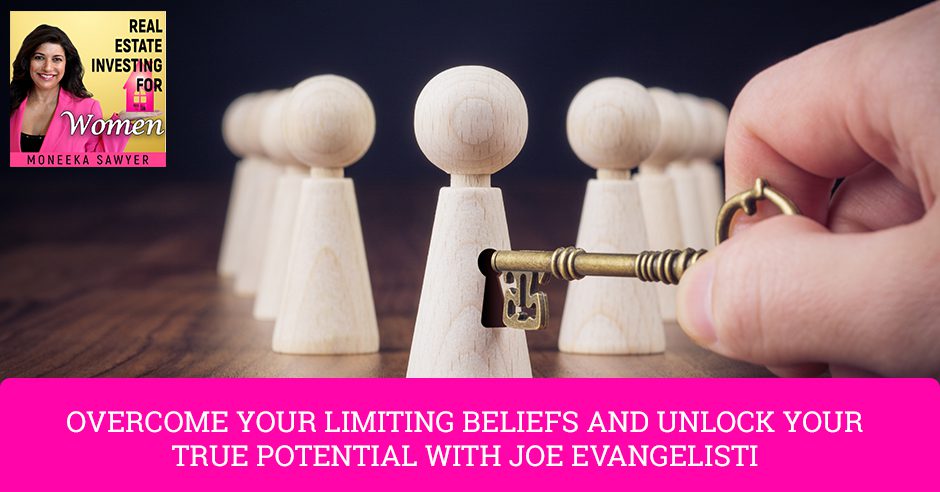
You will always have adversities blocking your path. The key is pivoting to unlock your true potential. Moneeka Sawyer presents Joe Evangelisti, a high-performance coach with over 5,000 hours of coaching experience under his belt and the host of the Legacy Blueprint Podcast. Joe shares with Moneeka that you need to follow your heart and gut when making decisions. However difficult the situation, you have to take action in some direction and know that it’s safe to fail. You need to be fearless. Do you know what keeps you back from being fearless 99% of the time? Limiting beliefs. Tune in to discover how to overcome limiting beliefs, pivot, and unlock your potential!
—
Watch the episode here
Listen to the podcast here
Overcome Your Limiting Beliefs And Unlock Your True Potential With Joe Evangelisti – Real Estate For Women
Real Estate Investing For Women
I am excited to welcome to the show Joe Evangelisti. He is the host of The Legacy Blueprint podcast and a high-performance coach with over 5,000 hours of coaching experience under his belt. His mission is to assist real estate investors, entrepreneurs, and business professionals in exercising their true power in finding their hidden potential to achieve more success, wealth and freedom than they have ever thought possible. Joe creates life-changing transformations by providing clients with the tools and strategies needed to create unstoppable momentum and breakthrough obstacles. He has helped hundreds of business owners to build better teams and cross the 7, 8 and even 9-figure mark. Joe, welcome to the show.
Thanks for having me on. I appreciate it.
I want to jump in and start with, how did you even get into coaching? Could you share that with us?
Redesign your business to serve your lifestyle. Share on XMost people ask how you get into business. Coaching is all different angles. Coaching started from many years of messing around in business and making a lot of mistakes, failures, trials and tribulations. I always tell people it’s hard to coach theory. You have to coach practice. You have to coach being in the trenches. I built my coaching practice the same way I’ve built my businesses, which is through trial and error, through doing it, through failing and pivoting. The coaching business was a byproduct of me going through many iterations of my business world, building different types of teams. I have a real estate background, a construction background. I built a pretty large fix and flip company.
Through the course of the process of building up these different teams, that brokerage, flip, rehab, and construction team, mentoring and coaching those teams along the way, you reach a certain level when people start to say, “How did you do it? Tell me how. Break it down.” We started doing events and we started doing meetups and masterminds. I went into this group coaching structure and then eventually morphed into one-on-one coaching. I get more passionate about working one-on-one directly with people because you get better results that way.
People hide in the crowd. Mastermind groups are awesome. I still attend them. I love being in certain groups and atmospheres, but it’s easy to go to a group like that and not get a lot out of it if you don’t put a lot into it. You can’t hide one-on-one. When you’re working with me, one-on-one, there’s nowhere to go. There’s nowhere to hide. I enjoy that much more. That’s how we transitioned into it.

Unlock Your True Potential: It’s hard to coach theory. You have to coach practice – through trial and error and failing through pivoting.
Do you spend more time now in your business in real estate or in coaching? What would you say?
I would say it’s about 50/50 now. The way that I’ve designed my teams and my real estate development teams is to get me out of it. One of the big a-ha moments that I learned probably 5, 6, 7 years into business is when I started to have those almost stress-induced meltdown moments that a lot of people have where I’m chasing and constantly working.
I remember being at that point in time where I had two young little girls at that time, new marriage, a new house and all that type of thing. Chasing after the next deal, the next flip, the next commission check, the next salesperson and working 80, 90 hours a week to stay busy, productive and pretend that I was getting somewhere.
I felt I couldn’t chase fast enough. I couldn’t run fast enough. There weren’t enough hours in the day to catch up and I know a lot of people feel that way. I had this moment where I said to myself, “I don’t know how long I can do this.” In my young 30s, at this point and I’m like, “I’m going to die of a heart attack. This is crazy. I’m not taking care of my body. I’m not taking care of myself. I’m eating like crap. I’m missing dinner.
I’m even calling in late and tell my wife I can’t come home. I’m not putting my daughters to bed. Something’s not right. This isn’t the way I designed it.” I made a big switch at that point in time and said, “I got to redesign my business to serve my lifestyle.” This is not why we get into business, to begin with. Isn’t that the whole concept is to create a business that serves our life.
Most of us give up our lives and the business owns us. It’s exactly what you’re talking about. I’m excited to hear about how you moved through that. I personally have moved through that several times, myself. Every single time you build a business, you get passionate about it. You have given everything at some point. You’re like, “I need to transfer out of that.” I’ve been through that transition myself several times.
Talk to us a little bit. We’re hopefully on the other side of the pandemic. A lot of us have been talking about the whole idea of a pivot. Changing our lives to be maybe economically resilient. Taking a brick and mortar and turning it into an online business. There’s a lot of pivoting that’s happening. Could you talk to us about your perspective on pivoting?
I heard this great saying at a podcast. At the beginning of COVID, sometimes these natural adversities that happen to us, like a COVID, a pandemic, or a thing like that, create these adversities in our life and our business that sometimes force us into uncomfortable situations, make us do certain things. The reality of it is maybe we should have been doing those things all along. Look at this vast dichotomy of different industries and businesses. During COVID, there was a subset of businesses, restaurants and hotels that there’s no pivot. You can’t stop people or create a business when your business is having people come in to eat.
You then see these other businesses that took off. That had 10 X the revenue and blew up and were hiring people. I believe it blew up because of the adversity. They made changes that they probably ought to have made several years ago. They downsized their offices. They went virtual. They created an opportunity for people. For me, one of my sales teams went virtual overnight.
We had thirteen people coming into the office to make phone calls. We said, “March 13th, 2020, it’s Sunday night. Monday morning, everyone on the Zoom.” Within a couple of months, that sales team, which is constantly recruiting in sales teams, went from all local salespeople to people working for me in Panama, California, Canada and New Mexico.
All of a sudden, I have this diverse pool of amazingly talented human beings from all over North America working for me, not just in my local area. I don’t know that I would’ve made that pivot had COVID not created that diversity for me. Sometimes pivots happen naturally. Sometimes pivots are things that we’re forced into but also, in business, we have to know in our gut when it’s time to make a pivot and not hold on and ride that ship into the ground too.
Talk to me a little bit more about that. Knowing when it’s appropriate and how to create that pivot?
At this level, it’s about deciding good business from bad business. Understanding how to take your mind out of it, going closer down to your heart and your guy. Making decisions down here instead of up here because here’s the thing, your mind a lot of times is going to create false images, emotions and things that maybe don’t exist. You tend to convince yourself or rationalize things that might not be the right move.
You might say to yourself, “I know this business isn’t doing well. It’s not making the revenue it should,” then we rationalize and tell ourselves, “There are good people that work there. It’s been around for a long time. What else are you going to do when you’ve been in this position for a long time?” If you break that rationalized word down into two parts, what we’re doing there is we’re telling ourselves rational lies about why the gut decision that you’ve already made was right all along. Now you’re convincing yourself, “Why not go with your gut?”
You have to take action in some direction and know that it's safe to fail. Share on XWe’ve all done this as business owners. How many times have you done this? You said to yourself, “I love that business opportunity, but I’m not ready for it. It’s too risky. That investment’s a little bit scary. I don’t know if I’m going to find the people to go along with me.” You know your guts telling you, “Do it.” You then rationalize, “I don’t know if that’s the right move for me,” if more business owners were learned to trust their instincts.
You don’t generally regret even the bad moves you made when you made them with your gut. If you look back on it, you’ll justify a gut mistake. When you make a mistake and you look back on you’re like, “I made a mistake, but I learned.” You regret the decisions that you made with your head that were bad mistakes. You look back on it and you’re like, “I didn’t analyze that enough. I didn’t count those figures. I wasn’t sure about that move. I should’ve thought more about that.” You’d regret the head mistakes. You don’t regret the gut mistakes.
In real estate, we see this all the time. You talked about one area that feels a little bit too risky. Even after we make the decision to take that risk, whether you’re flipping, you’re in construction. You’re looking for a renter or whatever it is that you’re doing, there’s a whole series of gut decisions that we have to make. Of course, you need to use your mind. We can’t use our gut.
We need to use our minds. We need to know the numbers. Businesses don’t work unless the numbers work. That’s the truth. All along the way, learning to trust your gut, it’s not in that one piece. It’s in the entire business. Who are you hiring? Who are you bringing on as part of your team? Who are you renting your places to? All of those pieces require getting in touch with who you are. That’s hard.
As business people, we’re trained, especially in this society, to be heady. It’s hard to get in touch with our guts. Do you have techniques or strategies? You have a lot of experience with it. For you, it’s now a natural thing. For me, that’s true too. I’ve been in business for many years. When your coaching clients come to you and say, “You haven’t had I get in touch with that.” What do you say?

Unlock Your True Potential: The more successful you get, the bigger the problems you have to solve.
It comes from practice, but it also comes from taking action. You have to take action in some direction and know that it’s safe to fail. It’s safe to fall. It’s going to happen. One of the biggest misnomers and it started becoming more into light because people are starting to talk about it. Several years ago, I felt everybody on Facebook was wealthy, perfect, every picture you took was amazing, they never did anything wrong and now, all of a sudden, the gurus are talking about how they fail all the time. The gurus are talking about how difficult things are and that’s the truth.
The truth in business is I get punched in the face every single day. The more successful I get, the harder I get hit. The more successful I get, the bigger the problems are that I have to solve. In fact, it’s the flip side of that. The more successful that you get, the more that you want to chase bigger obstacles to overcome. The more that you want to find bigger problems to tackle, the bigger your dreams get.
Jim Rohn has this amazing video and he was talking about the bigger, my dreams and my purpose are, the bigger, the things are that I want to chase. They become magnets. When I am magnetized towards my dreams and I’m being pulled through the trenches, mud, bad days, challenges, I have a bigger purpose dragging me through that. For people who are starting out, you have to decide, and this doesn’t happen far off enough. Why are you doing it? Are you doing it because you saw it on HGTV? Are you doing it because you want to build wealth? Are you doing it because you want to take care of your kids?
Fill in the blanks. Every one of us has a reason or has a why, but I don’t like it to be that, “What’s your why?” I like it to be, “What’s the purpose behind it?” People say I want to make $100,000 a month. Great. Why? What are you going to do with it? Nobody knows why. They always say I want to make $100,000 a month, but you don’t know why. You start to dial it in. You’re like, “I would give $10,000 a month in my church.” Let’s write that down. I would do this, I would do that and then you find out that $50,000 a month is a ton of money for certain people. It’s all relative.
The reason I say that is we’re always chasing someone else’s dreams. If you’re chasing someone else’s dreams, there’s no magnet in that because all I’m doing is looking across the table and saying, “I want to be like you.” There’s no why to that. There’s no purpose. There are no results. There’s no passion behind me wanting to be you. There’s passion in me chasing my dreams and being magnetized toward a bigger goal.
There were many little nuggets that I would love. That was unbelievable. Thank you for that. I agree with it and I’m not going to ruin it with my own commentary on that. What I did want to say for my ladies, to add my perspective on one piece of this, is that we talk on this show a lot about bliss. The way that I define it is this deep sense of joy and contentment. The confidence he can handle anything that comes your way. It’s about emotional mastery and emotional resilience. What I want to point out about this is that bliss does not mean that light is easy.
Bliss does not mean that we don’t have a full range of emotions. It means we live in a particular emotional place and that emotional predisposition allows us to have filters that help us to see the world in a certain way. I’m calling it bliss because, for me, it is a true joy to live like that. Does that mean that I’m not constantly chasing a bigger challenge?
Success is the progressive realization of a worthy goal or ideal. Share on XNo. My life is not fulfilled unless there are challenges in it. Those challenges are what make me feel alive. Ladies, when you hear bliss, don’t hear easy. Don’t hear, “I’m always happy all the time.” Don’t hear there are no challenges because none of that is true. What is true is that it allows you to have a predisposition to succeed. That was the only thing I wanted to add to that.
That was perfect.
Talk to me about this idea of having the right aces in their places. I know we’re going to talk a deep dive on that in EXTRA, but could you give us a high-level view on that?
Aces in their places mean one thing. I wrote a book called Multiplicity and it talks about the five freedoms. One of those freedoms, we always talk about financial freedom. That’s all you ever here. I will say this you can’t have financial freedom without the other four. One of those four is what we call relationship freedom. It is the ability to work with, to be with, to engage with, to have friends who are people who you want to be in your tribe.
When I talk about aces in their places, I’m talking about creating a culture and an opportunity around you inside of your business and your life. What that looks like is if it’s a side hustle, if you’re starting as an investor and you want to go build a team. You still need to have aces in their places. You need to have a great realtor. You have a great insurance person. You need to have great subcontractors, potentially. You need to have great electricians and plumbers and material suppliers.
Creating aces in their places for me, it’s finding out who are the people who are going to help me create the opportunity to succeed. That I can also help them along the path, it’s never a one for one, or it’s an I take and I don’t give. It’s how do I create alignment with your unique ability, something that you are passionate about that I know that you’re going to be successful there and I know that I can help you gain. How do I take that superpower? We all have a superpower.
I say this all the time, you might be the most amazing ice skater, house builder or cake baker, but if I find out that you’re the most amazing person and I could somehow put you in a seat or a place where we get paid together to do that and I can create an opportunity for you, that makes me a good visionary. That makes me a good leader because now we both benefit.
I’ve created an opportunity for you to be passionate about what you do and go exercise that passion because, let’s face it, not everybody is an entrepreneur. You might not be an entrepreneur. You might’ve been stuck in a 9:00 to 5:00, which you were afraid to leave. Now I’ve created an opportunity for you to make way more money and opportunity doing what you love to do in an environment that you love to do it.
That’s creating aces in their places. It’s trying to find the right passion, the right unique ability and create an opportunity where these people can work in harmony and team up to be great at what they do. Ultimately replace me and replace each other. Even if I’m the CEO, I tell everybody on my team, “I want you to replace me. I don’t want to be the CEO. I want to be on the board somewhere.” That’s the idea. The idea is that you work your way out, right or work me out of a job. This idea of creating aces in their places is understanding your people’s true passion and abilities. Making sure that they’re performing at their best based on what they’re great at.

Unlock Your True Potential: Relationship freedom is the ability to work with, engage with, and be friends with the people you want to be in your tribe.
My next question is, how do you do that? We’re going to talk about that in EXTRA. We’ll do a deep dive on that because it’s what Joe’s magic is. It’s what he does best. I want to get a deep dive into that. You talk a lot about culture. For me, in my real estate business, I outsource everything. My realtor, my finance people, my insurance, all of that. That’s an all-in outsourced thing in my business. Is building a culture important? How do you do that?
Think about it. Why do people go to work for a guy like Elon Musk? The guy’s certified a bit crazy. He says, “We’re going to Mars.” What happens? The top engineers on the planet quit their jobs to go work for him for little to no money. They will take a pay cut to move to some desert in Texas, to live out of a sea container, to work for him because of his vision and the culture that he’s created. That’s how important culture is.
People want to be part of a greater good, a greater contribution. They want to be part of something bigger. As the visionary, you have two jobs. Your job is to create the vision. What is the story? Where are we going? Be crystal clear about that, that people could believe you. You can’t change your mind every fifteen minutes or people are going to be like, “I don’t know who’s driving the bus. I’m terrified.” Create that story and then back it up with opportunity.
I’ve created a story. The story might be bigger and scarier. Trust me. I’m sure there are times where Elon lays his head down at night and says to themselves, “How the heck are we going to get to Mars? I don’t even know how we’re going to do this. I don’t know if all the top engineers in my company know how we’re going to do this.” I’m sure he second-guesses himself but as a visionary, you have to constantly be driven towards that mission and creating opportunity.
Now you have to fill the aces in their places. I got to figure out who’s going to get me to that vision? How does my team going to build around this vision? Where am I missing links? I call them my TBDs, my to-be-determined seats. How am I going to fill this bus with the right people to get me to that vision because my vision is way greater than the people who are surrounding me or it should be? If you want bigger dreams, you need bigger visions.
As a visionary, it’s not visionary if it’s comfortable. If it’s not keeping you up at night, if you don’t have self-doubt, if you don’t have the, “I have no idea how this is going to happen,” then it’s not visionary. It’s been done. Just because people are visionary, confident and successful does not mean that they don’t have self-doubt, that they don’t frequently stay up at night going, “What am I thinking?” Yet, they can’t let go. You don’t have to be a visionary to be successful. That’s the other thing that I would do want to tell you, ladies, because I know a lot of you want to buy a couple of houses. You want to put your kids through school.
You don’t want to have this huge vision that is awesome too. It takes all of us to make the world go round. Understanding all the way from the bottom, all the way to the top, we all have self-doubt that should not be something that stands in your way. It’s a mandatory requirement in order to expand your life. You’re not going to expand if you sit in the same place where there’s no self-doubt.
The definition of success, people have all these different measuring tools of comparing themselves to others. Earl Nightingale essentially said that success is creating a worthy goal and working towards it. That’s it. Whatever your worthy goal is. If your worthy goal is to create five rental properties and have some passive income for your family, that’s your goal.
There’s nobody who’s going to sit back and say to you, “That’s not good enough.” The reality of it is if you have 1 or 2 rental properties, you’re in the top 5% of Americans and that’s amazing. Nobody should be standing there saying to you, “The guy down the street has fifteen.” Who cares? The reality of it is you’re doing what success is for you.
I want to emphasize that, Joe. Do what success is for you. Not for me, Joe, your dad, your colleagues, or your kids. It’s important when you’re setting your goals and getting connected with your culture. What is it that you’re trying to put out there? What is it that you’re trying to achieve? Your big why. All of those have to do with you, not anybody else. Can you talk to me about the best investment you made and why?
I’ve invested millions of dollars in real estate. I always still say this to this day, that the best investment that I’ve ever made is in myself. I have for several years now had masterminds and one-on-one coaching. I’ve hired coaches for everything, mentors, personal trainers, well over six figures a year for several years, sometimes probably in the double six-figures. Everybody’s different and it’s not a measuring contest. One of the biggest challenges that people have is they want to get better, but they’re chasing away from investing in themselves. When you invest in yourself, you have skin in the game.
I’ll never forget one of my first coaches. This is probably going back many years now that I think about it. I was a real estate agent and my first coach was $500 a month or something like that, which is not a ton of money, but it’s not pennies. At that time, she was twice as much as my car payment. I was leasing an Acura back then. I was thinking to myself, “I got to close an extra deal or two a month to justify having a coach.” She was incredible. She helped me to be accountable. I was petrified to get on the phone with her every week. Thinking to myself, “If I don’t show up prepared and ready to go with my numbers,” Carol’s going to hang up on me.
“She’s not going to let me go. She is not light on me.” If I would answer that phone and be lazy, she would hang up. That was it. There was no callback. We had 45 minutes every Tuesday. She made me a better salesperson because she made me accountable and committed to my numbers. I remember immediately getting results. By month two, I had doubled my sales. By month six, I was the top salesperson in my entire office and I was 24 years old. I remember thinking back, “This coaching thing’s wild.” You got to take a gamble on yourself. You got to put some money out, but it’s wild having somebody who’s what I call a co-creator.
A great coach shouldn’t be telling you what to do or how to do it. They should be co-creating with you. They should be working you through it because the reality of it is you probably have had most of the world experience you need to get the results. A lot of times, simplicity is the path to mastery. A lot of times, it’s right in front of us and we’re looking for all these shiny objects. We’re all over the place trying to figure it out.
The reality of it is, for the most part, with a notepad, a pen and a cell phone, we can be successful. We’re chasing all these other shiny objects and inevitably, we end up in our way. Sometimes dialing it down, hiring the right person, having the right conversation and focusing on what I call high-gain and high-income activities it’s all you need to do to get what you want out of life and business.
A great coach shouldn't be telling you what to do or how to do it. They should be co-creating with you. Share on XI love that because much of the time, I talk about the best way to set up your business and the streamline it is to start with a spreadsheet. What are the activities that you’re doing? My advice has to do with having a Word doc that you can access from anywhere to take certain notes or do a spreadsheet. People are all about the high-tech solutions, all the cool stuff, the CRMs and where do you get your leads and all of this stuff, the call centers.
Sometimes do with simple, intuitive and start there. Don’t get into all the shiny objects as far as strategies and opportunities, but there are also shiny objects on how we are running our business. I love it when another super successful person says, “A piece of paper and a pen.” That’s where we start. It can be as simple as that.
I have the saying that experts don’t know how to add. They know how to subtract. Always trying to add more, add more, “What else can I put on my plate?” The reality of it is not on your calendar, plate, personal life or your home life. I know we’re talking to a lot of ladies who are reading. I coach a lot of dads. I’m coaching more on personal life than I am on business.
The reality of it is people come to me because they want their businesses to scale. What do we do? We turn around, I go, “Tell me about your home life? How are you taking care of your body, mind, kids and your wife? What does it look like at home?” We start working on that stuff and immediately start making more money.
It’s like, “When I become a better dad, I start making more money.” I never thought about that. When I started dating my wife again, all of a sudden, my life became happier. No kidding. This is the reality of things. We look past the seemingly simple stuff, which is the basics. You ask somebody, “Why do you do what you do?” “I do it for my kids. I do it for my family.”
“Why do you miss every soccer game? Why do you not have family dinners? Why haven’t you taken your wife on a date in nine months? Why haven’t you bought her flowers in many years?” They go, “I never thought about that.” You’re not doing anything for your family. It’s a ruse. You’re making it up. What I want to do is dial back to let’s become a better person at home, in my life, and now, all of a sudden, the money is easy.
We have time and money. That’s our two resources. That’s it. I’m sure you’ve been in real estate and you’ve lost money. I’m positive about it. I’ve lost millions of dollars in the process of making millions of dollars. I’ve lost time. I’ve never gotten time back. You can’t get five minutes back. You can’t get 30 seconds back. You can get your money back.
You can lose a lot of money now and get it all back tomorrow. How many successful people do you know have filed for bankruptcy? I know quite a few. I don’t know anybody that’s ever gotten a minute back. Focusing on home life is generally one of the things that increase financial life. We got off topic there for a minute. I don’t know how we ended up going down that rabbit hole.
That’s how I’ve coached. I was an executive coach for many years and that’s exactly what it was, is get your life back in alignment with who you are. My last question before we move towards the three rapid-fire questions is how can my readers become fearless? Do you have tips for that?
Tony Robbins has this great thing. He says there’s the four S’s and I don’t want to jump into all of them, but there’s state story strategy and standards. The story is our identity. It’s who we are. With that, going down this crazy rabbit hole, you get to decide who you are. You could decide tomorrow you’re going to be a more aggressive salesperson. You could decide tomorrow you’re going to become a happier person and treat everyone nicer. You get to decide. That’s the craziest part about who we are as human beings.
We’re the only species who can wake up tomorrow and be someone different. Fearless is an identity. What’s keeping you from being fearless 99% of the time is some limiting belief. It’s something that somebody taught you, some experience that you had, or some past belief that you’ve learned along the way that got you to this point that’s holding you back. We call these paradigm shifts.
We’re all experiencing these paradigm shifts. As we go through life, I call it the model of our world, our MOW. We all have a model of the world that we’re looking through, almost like a lens and we’re changing prescription glasses constantly. We’re upgrading our site through a different lens. I say, “If you’re looking in the mirror and you’re looking at the person you are now, most likely the person from six months ago couldn’t handle the challenges. If you’re growing as a person, as an entrepreneur or as a leader, six months ago, you couldn’t handle the challenges you’re handling now or maybe several years ago.”
Put things into perspective. What are we being fearless about? What are we trying to overcome? You’ve probably overcome challenges in the last several months that the person of you several years ago wouldn’t even consider stepping into that obstacle or wouldn’t even consider being in that atmosphere. I look at what we’re doing now from a development perspective. To keep it personal a little bit, I’m developing self-storage deals. I used to flip over 100 houses a year. One development deal is worth ten times more than all the houses I’ve flipped in one year and it’s scary. You have to put yourself into a different paradigm. You have to put on a different set of glasses.
What I would say is reflection is one of those ways to determine what my limiting belief is. What is it that I’m afraid to step into? How do I create that big dream that’s going to magnetize me to pull myself through this little obstacle? The reality of it is when you get to the other side, when you get closer and closer to that big dream, you’re going to look back and you’re going to say to yourself, “What was I afraid of?”
I remember when that thing I was doing was scary and now I look back on and go, “I remember when it was scared to flip the house.” I didn’t see the last 400 that we did. I never stepped foot on them. I’m not saying that to brag again because that’s not the point. The point is that you get past a certain point of scary and all of a sudden, it becomes mundane.
In order to become fearless, I think perspective has a big part of it. Remember, all problems are problems of perspective. Some problems for people who are reading now are not problems for you. Some problems for you aren’t problems for me. Maybe my problems aren’t problems for you. It’s all a matter of perspective the way we look at them. I think unlocking those limiting beliefs, trying to figure out what’s holding you back, pushing you to the next level or helping you get to that next level is all-important steps there.

Unlock Your True Potential: What’s keeping you from being fearless 99% of the time is some limiting belief.
I released my first TEDx Talk and it’s been a two-year journey for me from what I decided to do or was asked to do it and finally realized. Once I landed it, I had to write the talk because you don’t write the talk to you, land it because there’s a theme and all this stuff. I had to write the talk and then I had to give the talk. The video gets released and you see if anybody liked it. It’s like heroin.
The thing is that when I made that decision a long time ago to do it, I couldn’t see me on the red dot. I couldn’t see what was going to happen. I didn’t even know what the big message was or that I was good enough. Part of being fearless is saying, “I don’t know what this is going to look like, but I identify myself as being fearless and therefore, I will keep stepping forward.”
When you do that, on the other side, you’re forever changed. It may not be something as dramatic as I did my TED Talk because there was a deadline and something happened that I’m forever changed. I loved what you talked about with how much you’ve accomplished in the last years and understand that you are forever changed if you continue to grow. It could be an event or it could be a time period, but recognize that and recognize that being fearless is simply an identity. It allows you to take the next step.
I’ll add to that. I believe that the TEDx piece that you’re going through had to be a decision from the heart and the gut. That’s what got you there. You know it’s the right thing and that’s why you decided from there and move forward. I think it’s going to be incredible for you.
Before we get into the three rapid-fire questions and EXTRA, could you tell us how we can get in touch with you, Joe?
People can visit me on social media, Facebook or LinkedIn. It’s all Joe Evangelisti or @JoeEvangelisti. They could also go to LegacyBuilder.coach if they’re interested in coaching or one-on-one.
You have a gift that you give there. Could you tell us about that?
If they go to LegacyBuilder.coach, my team will do a fifteen-minute one-on-one session to tell people to unlock time. I find one of the biggest challenges is what we call controlling the clock. We’ll do a fifteen-minute one-on-one session to help you unlock time and create a little bit more timeframe for you.
That’s the only resource we never get back. Thank you so much for that. Joe, are you ready for our three rapid-fire questions?
Let’s do it.
Tell us one super tip in getting started investing in real estate.
You got to get started. Find a way to get started one way or the other. The joint venture, go take down a property, find it with private money. If you’re going to put 20% down, find a property and take a step towards it. There are many ways and methodologies in getting started nowadays. You can buy a duplex and live in half. You can buy a quad and live in one of the units. I’ve seen many in the last couple of years, friends of mine, who’ve gotten started doing it that way.
If the risk is your concern, do it that way. Live in half of it. Be a landlord and live in half of it. Take action in what we call intelligent and inspired action. Don’t overanalyze. I was interviewing somebody and she called and said to me, “I have a real estate degree. I have an MBA and I went through FortuneBuilders and paid them $75,000.” I go, “That’s amazing. How much real estate do you own?” She says, “I never bought a property.”
You’ve made an investment of $200,000 into your education and you’ve never bought a rental property. I barely graduated high school, folks. I went through a bunch of colleges only because the Navy paid me to go through a bunch of colleges and I still never got my degree anywhere. I built a portfolio worth millions of dollars. I can do it. I’m not smart. I feel like too many people over-analyze and get afraid of the risk instead of taking it. You’re going to screw things up. Go out there and test the waters. That’s the only way it’s going to work.
Tell us one strategy for being successful as a real estate investor.
One strategy is to get involved, get invested. The second piece is to build a great team. You have to be thorough about who’s on your team, who you do business with, or who your joint venture partners are. Protect yourself first. A lot of people I see get involved are worried about doing a deal that they’re not paying attention to how much equity they give out or bringing in their best friend as their partner. Next thing you know, there are four people in on a single-family house. The reality of it is if you’re smart, you’re the one doing the research, you know what you’re doing, you’re capable, you can raise the money or you have the money, go out there and take it, do it, buy that duplex.
You don’t need four partners to do it with. Go out there and take a step forward. Get a mentor, get a coach. A lot of times, you’re better off paying somebody a couple of thousand dollars to mentor you rather than take on a partner and give them 50% of the deal. You’re going to wake up a couple of years from now, and you’re going to put a couple extra $100 thousand in your pocket as a result. That’s a better investment in my mind to help somebody get involved in a deal.
Ladies, recognize that when he’s talking about a team, he did talk about a mentor as part of the team. That’s a different way of looking at that. Your mentor or your coaches are part of the team. They’re part of the business ecosystem. Talk to us about one daily practice that you would say contributes to your personal success.
The daily practice that I can’t live without is my morning routine. I usually get up at 4:00. I go to the gym. I work out from 5:00 to 6:00. I come home. I meditate, I journal, I read and I do all this to get prepared for my girls who are going to start school because I want all my routine done before I wake them up in the morning. My time with my daughters is in the morning. I get them dressed in the morning. I have breakfast with them and I take them to school. For me, it’s early in the morning. The reason I give you that asterisk is I want people to work in what I call their zone of genius.
Find a way to get started one way or the other. Share on XMy zone of genius is getting stuff done early in the morning. I’m most productive when I build that protection mechanism around my head and my mind. I work on my body and my mind first thing in the morning. Some people can’t do that. Some people have practiced that and they’re like, “I’m miserable. I can’t get up at 4:00 AM.” Don’t do it. If you’re amazing from 10:00 AM to 12:00 midnight, then protect that time. Be good at that time. Have a routine and rituals that work for your zone of genius. Figure out when your time is to be amazing. When you can be quiet, alone and alone with your thoughts, that’s going to help you accelerate the growth and get you closer to your dreams.
This has been amazing, Joe. This conversation, I want to read it all over again. Thank you so much.
Thanks for having me. It was great.
We’ve got more ladies. We’re going to be talking about getting the aces in their places. We’re going to talk about how to do that, which we’ve talked a lot on the show about building teams. I love Joe’s perspective on this. I’m excited for that deep dive. For those of you that are already subscribed to EXTRA, we’ve got more. If you’re not subscribed to EXTRA, this might be the time you want to.
Go to RealEstateInvestingForWomenEXTRA.com. You get the first seven days for free. Check it out and you can stay subscribed or not. For those of you that are leaving, Joe and I, thank you so much for joining us. Until then, remember, goals without action are just dreams. Get out there, take action and create the life your heart deeply desires.
Important Links
- The Legacy Blueprint – Apple Podcasts
- Multiplicity
- TEDx Talk – Who is the Boss of You?
- Facebook – Joe Evangelisti
- LinkedIn – Joe Evangelisti
- @JoeEvangelisti – Instagram
- LegacyBuilder.coach
- RealEstateInvestingForWomenEXTRA.com
About Joe Evangelisti
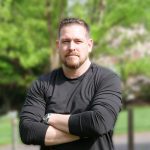
Joe Evangelisti is a high-performance coach with over 5,000 hours of coaching experience under his belt. His mission is to assist real estate investors, entrepreneurs, and business professionals in exercising their true power and finding their hidden potential to achieve more success, wealth, and freedom than they ever thought possible. Joe creates life-changing transformation by providing clients with the tools and strategies needed to create unstoppable momentum and break through obstacles. He’s helped hundreds of business owners to build better teams and cross the 7, 8, and 9 figure mark.
In addition to his private coaching practice, Joe serves as the CEO of three 7 and 8 figure companies, and his real estate portfolio includes single-family, multi-family, self-storage, and cold storage. Prior to building his business and real estate empire, Joe served in the military as a Builder in the US Navy Seabees. He holds Letters of Commendation from the US Navy and The White House, a Letter of Appreciation from President Clinton, and numerous service medals. Joe lives with his wife Ashley and their 2 girls in beautiful Haddonfield, New Jersey.
Love the show? Subscribe, rate, review, and share! https://blissfulinvestor.com/podcast/
______________________________________
To listen to the EXTRA portion of this show go to RealEstateInvestingForWomenExtra.com
To see this program in video:
Search on Roku for Real Estate Investing 4 Women or go to this link: https://blissfulinvestor.com/biroku
On YouTube go to Real Estate Investing for Women
Moneeka Sawyer is often described as one of the most blissful people you will ever meet. She has been investing in Real Estate for over 20 years, so has been through all the different cycles of the market. Still, she has turned $10,000 into over $5,000,000, working only 5-10 hours per MONTH with very little stress.
While building her multi-million dollar business, she has traveled to over 55 countries, dances every single day, supports causes that are important to her, and spends lots of time with her husband of over 20 years.
She is the international best-selling author of the multiple award-winning books “Choose Bliss: The Power and Practice of Joy and Contentment” and “Real Estate Investing for Women: Expert Conversations to Increase Wealth and Happiness the Blissful Way.”
Moneeka has been featured on stages including Carnegie Hall and Nasdaq, radio, podcasts such as Achieve Your Goals with Hal Elrod, and TV stations including ABC, CBS, FOX, and the CW, impacting over 150 million people.
What Common Mistake Do Many Real Estate Investors Make? With Zack Boothe – Real Estate For Women
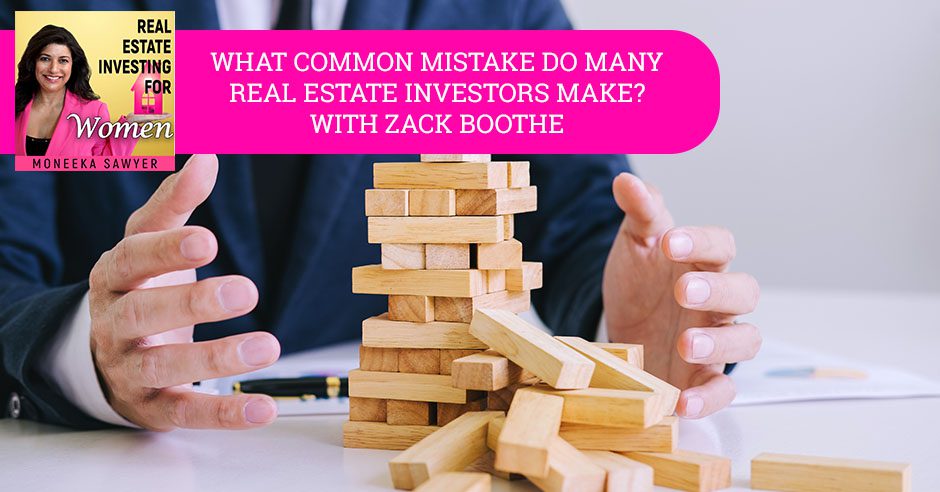
What is the most common mistake beginners in real estate make? They try to figure things out on their own. Moneeka Sawyer’s guest today is Zack Boothe, the founder of Driving For Dollars Mastery. Zack shares with Moneeka how listening to podcasts and watching YouTube videos won’t give you a clear path as coaching can. Find a mentor you connect with to help you find a path that works for you. It’s only when you have massive belief in what you’re doing that you succeed. Tune in and learn how to find the right mentor for you!
—
Watch the episode here
Listen to the podcast here
What Common Mistake Do Many Real Estate Investors Make? With Zack Boothe – Real Estate For Women
Real Estate Investing For Women
I am so excited to welcome to the show Zack Boothe. A few years ago, Zack was a window cleaner. You can even find his window cleaning tutorial videos on YouTube with millions of views. However, Zack always dreamt of being a real estate investor. Taking a leap of faith, he walked away from window cleaning. With a handful of years, he was making over $1 million per year from real estate investing. With his successful business, he now spends his time helping others see how simple it is to make money with real estate. Zack is here to share his insider secrets to finding massively discounted properties, regardless of your experience level. Zack, welcome to the show.
Thanks for having me. It’s good to be here.
I’m so glad that you’re able to make it. He told me before, Ladies, that he wasn’t feeling very well. I thought that this conversation was interesting. I didn’t want to put it off. We’re going to go ahead and go for it, Zack. I’m excited to have you here. Tell us a little bit more about your story, like the high-level two-minute version.
I was a window cleaner. It was good. I was providing for my family, but it wasn’t quite enough. It was a struggle. I wanted something different. I wanted to be able to provide a better life for my family. The day my son was born, I couldn’t help but be overwhelmed and stressed about how I was going to pay the medical bills. That pushed me to want to get into real estate investing. I did my first investment deal back in 2012. I bought a rental. It was a pre-foreclosure. My wife and I got dirty and cleaned it up ourselves and rented one side and lived in the other.
We had that experience and got the bug. We wanted to do more deals. We have so many roadblocks after that. Debt to income ratios, getting the loans, being self-employed, especially because I wasn’t making a lot of money as a window cleaner. I found out about real estate wholesaling. I got a mentor and it’s changed my life. Now I’m making six figures a month from this business. I have a team that does it for me. I do it in two different markets. I coach other people to do this, which is my passion and what I love doing. I create content. I have a podcast and YouTube channel around it. I love it. That’s the two-minute version of my journey and where I’m at.
Zack, how much time per week would you say that you spend on your business?
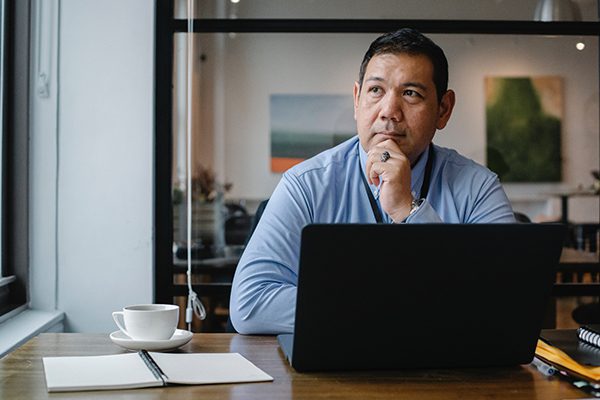
Real Estate Common Mistake: The biggest mistake people make is they try to figure things out on their own.
In coaching business, a lot. That’s where I spend all my time. If it’s a workweek and I work all week, 6, 7 days a week, it’s all day every day. As far as the wholesaling and investment business, I maybe spend four hours a week. I’ve been picking up about one property that I’m keeping for myself. I consider that my holding company. I’m spending a couple of hours a week on that business as well, but the wholesaling business that’s generating the majority of my money, I spend very little time at this point.
I look at what I do and people might be like, “That’s not true.” It is true, but where I spend my time is every Monday, I have a team meeting. I sit in on the Monday meeting. On Wednesdays, we do KPI reviews. What is that? I sit down with my two main people in my company, my marketing director and my lead acquisition manager. We sit down and look at our numbers. What our business did and where we’re at? Another thing, I’m going to lunch with a potential financial private money lender. Those are the kinds of things that I do. I meet with high-level people. I interview someone that’s going to be a project manager for a flip or whatever that might be, but I don’t spend much time in the business.
How long did it take you to get to this point where you’re only working about 4 to 6 hours a week?
I quit window cleaning and went full-time into real estate investing at the beginning of 2017. It’s not long. A few years ago, I transitioned out of the day-to-day. It took me about two years to build the company. The first year we did $118,000 in income. The second year, I did shy of $500,000. The next year we did $1.2 million, and that’s what I walked away from the business and put other people in place.
The cool thing is I cut a lot of expenses but also cut revenue and had some hiccups doing that. The next year, we only did $700,000, but my profit margins were better. In May 2021, we’re at $700,000 already. We’re fully expecting to have our best year ever because I increased our ad spend by 25%. We should end 2021 between $1.5 million and $2 million in sales with a 40% profit margin.
Ladies, this is why I’m having this conversation. The conversations that I’m most interested in, and I know so many of you ladies are interested in, is you’re successful, and this is what you’re doing right now, but how did you get here? I only worked 5 to 10 hours a month, and people were like, “Was it always this way?” No, there’s a ramp-up time. When you start your business, what is it that you’re doing to make that happen? For me, I’ve always worked those hours, but my business was a side hustle. I wasn’t paying attention to it.
I’ll admit openly that I probably would have reached wealth much faster if I had paid more attention. I loved this conversation with other successful real estate entrepreneurs to find out what the ramp-up looks like and where they’re at. That’s why I wanted to ask these questions, Zack. One of the pieces that I wanted to ask you is, in the first three years, how much time do you feel like you were spending in that business? Was it part-time, partial time, more than part-time? What did that look like?
It’s overtime hours. I still work more hours than most people, but I believe that this life is not made for sipping piña coladas on a beach. I believe that we find fulfillment in life by challenging ourselves and growing. Once I started finding success in real estate, I happened upon coaching. It wasn’t even planned. I started finding fulfillment helping other people find success. My mentor said something that stuck with me. He said, “When you win in the game of money, there’s no joy in running up the score.”
We find fulfillment in life by challenging ourselves and growing. Share on XPeople say all the time, as wealthy people, even though, “Money’s not important.” Someone hears that, and they go, “Yeah, because you already have money,” but they’re both right. There’s a certain amount of money that is very important. You’ve got to provide for your family. You’ve got to eat. There is a certain level of money once you hit that. More doesn’t equal that same level of comfort and peace. I started having a massive amount of financial success after hustling for two years, and I wanted something different.
I’m going off on a tangent here to answer your question. I worked very hard in my wholesaling business in those first two years. I walked away from my window cleaning business. I had two months until I was not going to be able to pay the mortgage. I hadn’t done a wholesale deal. I hired a mentor and I was going to do it. I know it’s a little crazy for most people. I had to put my coaching fees on a credit card. A lot of my marketing is on a credit card. I was going to make it happen.
I was working until 10:00, 11:00 every single night, seven days a week, until I did my first deal. I did my first deal. It was $10,000 and it was amazing. My biggest deal that first eight months was $30,000. That was the $100,000 that I made in that first year, the first eight months of wholesaling. I kept working my butt off. My mentor also said something that stuck with me. He said, “Hustle is a season, not a way of life.”
I feel like I hustled to work hard, but then it got to the point where I started working a little more strategically to build out the team. To get to that level of success, you have to start somewhere. Where do you start? Your goal is to get your first deal, your second deal, and then your third deal. It evolves from there. Don’t overcomplicate it. Don’t look at someone that’s had levels of success and has a team and says, “I only work five hours a week.” I was like, “How’s that possible?” They work their butts off in the beginning.
You and I have a little bit of a different point of view, but I love that each of us has how we define bliss and then that’s what we work for in our life. That’s what gives us fulfillment. Could you tell us the mistake that you see beginners make in real estate investing, the biggest mistake, the most common one?
The biggest mistake that people make is they try and figure it out on their own. They listened to a podcast. They watch a YouTube video and then they watch another podcast. They take some action steps, but it’s unorganized. It’s not clear. They don’t know exactly if it’s going to work. When they’re doing those action steps, they’re not super confident in them. One of the guys that I follow that I love, Tony Robbins. He talks about the cycle of success that people have.
To be able to tap into our full potential as people, we have to have a massive belief in whatever we’re doing. If we start wanting to do a wholesale deal and we watch a YouTube video and be like, “They said to go buy a list from PropStream and to send postcards. I’m going to try that.” You go do it. You’re not sure if it’s going to work. You’re not going to give a massive amount of effort. For example, you’re not going to drop $7,000 on postcards. You don’t have a massive belief.
If you know for a fact that if you spent $5,000 to $7,000 on postcards, you’re going to make $30,000. Would you do it? Yes, because you have a massive belief in it. What happens is if you have a belief, you’ll give massive action. If you give massive action, you’ll have massive results. You’re going to build your confidence. If you’re going to do another deal and another deal, and you’re going to grow, do more deals and add more marketing strategies or whatever that might be.
The problem is people don’t go at it with confidence because they’re going at it alone. They’re trying to figure it out from just a podcast. That’s why it was so important to get a mentor. That’s why I got a mentor in the beginning. I would not be successful without my mentor. Tom Krol was my mentor. He doesn’t coach anymore. I love him to death. He changed my life, got me out of window cleaning and into this business.

Real Estate Common Mistake: Driving for dollars is a simple strategy to find discounted properties.
He’s out of Florida, but he gave me the action steps. There was no confusion of like, “What do I do next? If I do this, will it perform?” He said, “Zack, go do this and this.” I went and did it. I’m like, “Done, now what?” He said, “Do this and this.” I went and did it. I did it in mass. I took very uncomfortable steps, but he told me to do them. I knew that he was successful.
If I did what he did, I’d be successful. That’s how I had success. I feel like that’s the number one issue. People put a toe in instead of jumping in, but the problem is they don’t get a mentor. That’s jumping in. It was like getting a mentor that gives them the step-by-step action steps so they can implement them and do them. I also believe there are bad mentors.
I do, too. Yes, thank you for addressing that.
I’m not going to pay anybody, but I believe getting a mentor that’s going to get you there is very important.
How do you pick a mentor? What would you recommend?
There’s a handful of things that I would suggest. Some people might be hearing this and going, “You’re saying that because you are a mentor,” yes, but I’m not going to coach everyone that wants a coach. Find your mentor, first of all, that you connect with. Someone might have already heard some of the things I said and completely don’t vibe with me. First of all, don’t even think about working with me. Find someone that’s a mentor that you vibe with.
The type of person that you have, and also are living the types of lives, have the same core values, same core beliefs. They’re your port people. They would be your best friend in different circumstances. That’s the first thing I would look at. The second is that they are doing what you’re trying to accomplish. Don’t hire mentors that only teach but don’t do what they say. If you want to get into wholesaling, make sure they also wholesale and coach, not just coach.
Hustle is a season, not a way of life. Share on XThe next thing I would look at is do they have successful students. It’s one thing to say, “Yeah, I know how to do it.” It’s a whole another thing. I promise. Coaching and doing wholesaling are two different things. If that coach hasn’t been able to help lots of people become successful and you can’t talk to those successful students and have those successful students say, “Yes, that person changed my life.” Just like I talked about Tom Krol. If their students aren’t saying those kinds of things, don’t join the program. That would be my advice, those three things.
Thank you for that. I do get a lot of people who call me and they’re like, “Moneeka, you talk about getting a mentor. How should I get a mentor?” That’s great advice. Thank you for that. What would you say is the best strategy for finding deeply discounted properties? That’s what you do?
That’s what all of the real estate investing is. It’s finding discounted properties. I was reading a book called Multi-Family Millions, but it’s talking about doing giant multifamily deals, million-dollar projects. He said something that clicked. This was at the beginning of my real estate journey. He said that, “Real estate investing is marketing. Our product is real estate. If you can’t get that between your two ears, you won’t be in business for long.”
He has a couple of sections in there. We talked about how you find discounted properties. It doesn’t matter if you’re wholesaling or giant properties. Our business is marketing. We have to find discounted properties to do deals on. There’s the cliche saying, “You’ve got to buy low to sell high.” You have to start with a good deal. It doesn’t matter if you want a wholesale, buy and hold, flip, syndications, whatever it might be.
One of the things that I do and everything that I do is branded Driving For Dollars Mastery or DFD Mastery. My website is DrivingForDollarsMastery.com. Driving For Dollars is a strategy that I use to find discounted properties. It’s simple. You drive around neighborhoods and find the ugly properties, the ugly multifamily houses and single-family houses. You add it to a list. You find out who owns it, and then you see if they want to sell. That’s simple.
Obviously, there are things to be more efficient to do on a larger scale and to be able to be very profitable. I truly believe that is the best way to find off-market discounted properties. There are lots of ways, though. There are banded signs, radio, online marketing. There are lots of different things, but I truly believe that is by far the best, most profitable, and fastest way to deals.
Zack, where are you located?
I’m in Utah.
It’s a hot market there, too. It’s a hot market everywhere.
It is everywhere. I also live in Tampa. I do it in two different markets.
Talk to me a little bit about how you do this in a hot market. I live in San Jose, California. If someone wants to sell, if you send them a letter and you say, “Do you want to sell?” They’re very aware of what their property would be worth if they put it on the market, even if it was as-is. It’s hard in this area to get a discounted property because people can put it on, and bids will come in. Everything’s going for multiple offers. Things are going for several hundred thousand dollars over asking. Finding a discounted property is difficult in my experience. What would you say to that? What do you recommend?
It’s very important to understand that you have to be a deal finder, not necessarily a deal creator. Many people think that you have to be this swindler or dishonest, or shady to get discounted properties because everyone knows or understands that it’s a hot market and they can get a lot. What you need to understand is some people want convenience over the price. For example, we are real estate investors, wholesalers. We’re pawnshops for houses.
That’s the best explanation I can give. For example, if someone takes a piece of jewelry out of their house and they go, “I don’t want this piece of jewelry anymore. I want cash.” They could list it online. Put it on KSL, Craigslist, whatever online resources, eBay, and try and get as much as possible. You could drive down to the corner store and say, “Here’s my ring. Give me cash.” You’re going to make less at the pawnshop, but there’s a convenience factor, pawn shops to make money.
There are only a select few people that want to sell stuff at a pawnshop. There are people that and you might think that doesn’t exist, especially in a hot market. That’s not true at all. It’s not true because I’ve made $700,000 in five months doing this. It works. The funny thing is I have the same conversation with my neighbor, my cousin that calls me and says, “I need to sell my house. Will you buy it?” I say, “You might make more money listing it with an agent. Why don’t you do that?”
“I’m an investor. I can have it done quickly, but I might not be able to be your best offer.” They say, “Yeah, I’m not in a hurry. I’ll probably list it and fix it up myself.” It’s like, “Okay, best of luck. I can’t help you.” They say, “Yeah, I don’t necessarily care about getting out the money. I don’t want to fix it up. I don’t want to deal with an agent. I want to be done.” When they say that, that means it’s a deal. They want a pawnshop for a house. The biggest thing is you put out a net to the ugly houses in your neighborhood and ask them if they want to sell. You have that exact conversation.
Why don’t you listen, it sounds like it’s a decent property? It might need a little work. Why don’t you fix it up and list it? If they tell you, “No, I don’t want to,” then it’s a deal. I’ve captured those conversations. They’re on my YouTube channel. I straight up say, “You will make more money, listing it with an agent. Why don’t you do that?” They say, “I don’t care. I want it gone.” That’s who we’re trying to find. Are there very few people that want to sell their houses for speed and convenience? Yes. That’s why it’s so important to do marketing and to have a strategy to find off-market discounted properties.
Zack, I’ve never heard that analogy. Thank you.
You’re welcome. I stole that from Tom Krol as well. I’m not lying when I say, “Get a mentor. He changed my life.” I’m changing people’s lives by helping them. It’s going to snowball. There are going to be 2 or 3 people that I changed their life. They’re going to change more people’s lives. That’s fulfillment to me. I can go to the grave with all this money. It’s not going to make a difference, but what will make a difference is this content that we leave behind, the YouTube videos, the things that we talk about, the people that we helped. I will always have nothing but love and respect for Tom because of the action steps and the things that he did for me and the things that he gave me. I want to pass that on.
You talk a little bit about having different exit strategies. This is a hot topic for me that I talk about quite a lot. Could you talk a little bit about how you decide on your exit strategies to make the most money when you get a property?

Real Estate Common Mistake: Wholesaling is amazing because there’s no getting stuck with the deal.
When I first started, everything was wholesaling. I find a deal and a buyer that wanted to buy my contract and close on it. I didn’t have the money. I didn’t have the ability to do anything else. I was broke. I didn’t have debt to income. I didn’t have credit. I didn’t have private money investors. I didn’t have all those relationships I do now. What I do is we put together the deal. I don’t sign any of the contracts anymore, but the deals are presented to me. We’ll blast an email out to all of our cash buyers. We do a full inspection on the property.
Our agent goes to the real estate inspection. Our project manager goes to the inspection and all of our cash buyers. We get all of our cash offers in. We take the highest and best is what we tell our cash buyers. There’s no telling what our offers are and those kinds of things. I just want to get offers in. I don’t want to play the game of, “Tell me where I need to be. People are waiting to give me offers because they want to be last,” all that garbage.
I can assign it and say, “I’m going to sign a deal for $30,000. I can assign it for $30,000, or I can close on it with my cash. Keep it as a rental and refinance myself out or hard money and refinance myself out.” I evaluated it as a rental. I also have my project manager rough give me the numbers and present the Excel spreadsheet where we’ll be if we flipped it.
That’s why I have my agent there. What we could sell it for fixed up, what needs to be done as far as remodeled to get it there. The bids put together for that. I get to choose, “Do I keep it as a rental? Do I flip it? Do I wholesale it? Do I close on it and list it?” I have whatever strategy that I want to approach. During the acquisitions portion, we’re also talking to the seller. See if seller finance is taking over the mortgage is an option or if the cash offer is all they want. Depending on what they get it under contract for, then we’ll evaluate the deal from there.
I usually have three exit strategies, so it’s nice to see that you’ve got four. Ladies, this is an important thing to keep in mind. Zack, in the beginning, had to do it one way. Even me, I started in construction. This is the worst time on the planet to be in construction. Even when I got in, I had three exit strategies planned out. It wasn’t like I have to build this thing and sell it, or I’m going to die or go bankrupt or lose everything.
Even in the beginning, for me, if I get stuck with something, I know what I’m going to do with that. When you’re starting, even if it’s a wholesale thing, you had to make money. If you did end up getting stuck with a property, you would have a strategy to get out of that. Think through when you’re putting together your strategies, what could plan B be if things go bad? Wouldn’t you agree with me on that?
Find the mentor you connect with. Share on XYes. I also believe that’s the power of wholesaling. Why wholesaling is so amazing is there no risk. There is no getting stuck with the deal. That’s why I started with wholesaling because I saw it as a way to build a rental portfolio. I saw it as a way to build well because not only could I start my marketing and start finding off-market discounted deals there, step one, write good deals, but then I could get cash for them and not have to take any risk. As I built up more cash, then I can take that cash and maybe flip one and make a little bit more on the deal than just assigning it. The thing is, my average assignment deal in Utah is $30,000. In Florida, that’s $18,000 a deal. My profit margins are 40%.
That’s a lot of money. It’s a chunk of change. Eventually, getting into holding properties or flipping and taking those risks and having those other strategies is great. There’s nothing wrong with starting off at first with having wholesaling because if you do it right, we’ll have it under contract. In your contract, you’ll have a timeframe to inspect the property and to try and find a buyer for your purchase contract. If you can’t find a buyer within that time, you can cancel that agreement. You don’t put properties under contract. You don’t think that you can find a buyer for it. That’s the beauty of wholesaling. It’s a great place to start, and it’s way less risk-taking debt to flip a house.
Thank you for all that. Zack, tell everybody how they can reach you.
The best place to find me is my website, it’s DFDMastery.com. DFD stands for Driving For Dollars.
I know you don’t have a specific gift for people. I know that you’ve got a lot of content that you wanted to share with my audience. Tell us a little bit more about that.
I worked hard to help and to give back the content I create. I went down to Florida and the goal was to take $1,000 in a whole new market and turn it into $40,000 in 40 days. I opened up Florida. I’ve said, “I do deals in Florida. This is how it all started.” I flew to Florida. I had 40 days to make $40,000. I documented it all and had a film crew there and shared it for free on my YouTube channel. You guys can go see what it takes to get started in wholesaling with a very small budget and to see what kind of work that includes. You see the ups and downs.
I share the deals that fall apart. I share the frustrations, the exhaustion because it’s every day I share an episode. You get to see the entire process. It’s totally worth watching. We ended up with seven contracts. Two of them fell apart. We closed on the other five. Two of them, I kept as rentals with $100,000 in equity in both of them. Three of them, I ended up wholesaling. I sold the purchase contract. We made $93,000 on those three deals. Since I did everything myself, that’s pretty much all profits. It was a chunk of change. I don’t know very many people that could make $100,000 in a month. It’s not because they’re not smart enough or don’t have the work ethic.
They don’t know how. The whole point of that challenge is not to show off or anything, but it’s to show you guys that you guys can do it. I don’t feel like I’m anything special. I was a window cleaner. I didn’t go to college. I didn’t come from money. I had a good work ethic. You should see my spelling, it’s bad. I’m saying that I did that whole challenge to encourage you guys and to show you what’s possible. I don’t want to sugarcoat any of it, it’s hard. It’s a lot of hard work. The process is simple, but it’s not easy. That was the whole point of the challenge to show what it took to be a wholesaler and how to get started and what that initial hustle looks like.
Zack, that’s so generous that you did that. How do people find it on YouTube? What should they be looking for?
If you go to YouTube and search DFD Mastery. My YouTube channel is DFD Mastery. Everything I have is branded DFD Mastery, which stands for Driving For Dollars Mastery. You can find my YouTube channel. There’s a ton of awesome content in there. I’ve been producing three videos a week. We’re going to bump it up to four episodes a week. It’s a lot.
Ladies, go check that out. Thank you for that. Are you ready for the three Rapid-fire questions? Tell us one super tip on getting started investing in real estate.
Get a mentor, find a mentor.
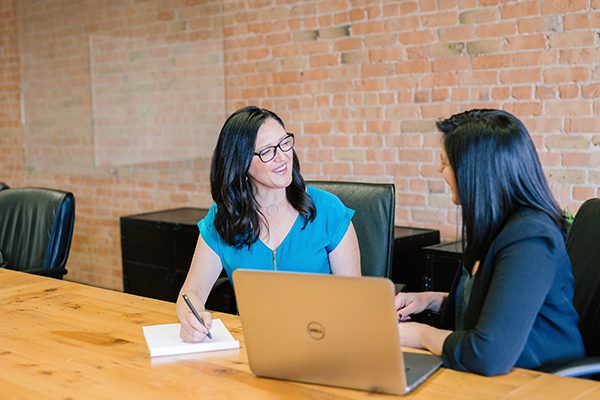
Real Estate Common Mistake: The whole point of the challenge is not to show off but to show you guys that you can do it.
What’s the strategy for being successful in real estate investing?
I believe that the most important thing is getting good at finding off-market discounted properties. If you can get good solid leads of people that want to pawnshop for their house, you will be successful. I believe that is a portion of investing, in general, is good deals.
What is one daily practice that you do that you would say contributes to your personal success?
I have a giant list of tasks. There is never a day that I don’t have a list that I can’t get to. I have a big list and what I do is I pick what’s going to move the needle towards my goals the most. I have a very clear direction, a 3-year goal, 1-year goal, and a 1-month goal outlined at all times. When I’m looking at my tasks and everything that I have to do, I pick what it is that I do it. Most people do the opposite. They do what sounds comfortable, like checking their emails. They skip the uncomfortable stuff, like cold calling to get a lead. I’ll even archive my entire email because I got 50 emails and it annoys me. I archive it all. I’m like, “If it’s important, they’ll call me.”
I get 3,000 emails a day. It’s funny.
My team will call me like, “Did you get my email?” I was like, “You know me. No.”
“Do you want to talk, give me a call?” I’m not that person, but that’s an interesting way to handle that.
I believe that’s a huge thing that I do is attack and it’s usually always the uncomfortable things. I believe what’s going to move the needle is what makes us uncomfortable. That’s why most people don’t ever move the needle in their lives is they’re like, “This is my giant task.” They’re like, “I’m working hard,” and it’s like, “Are you?” You’re not because you’re busy, but you’re not working on the right things. You know you’re not. You’re lying to yourself to make yourself feel proud of yourself when you know you’re not working on those hard things.
There is a difference between busy work and productivity, very definitively. Thank you for that. This has been amazing. I’m so excited. Thank you for all you’ve shared on this portion of the show, Zack.
You’re welcome. Thanks for having me. It’s fun.
You change people's lives by helping them. Share on XLadies, thank you for joining Zack and me for this portion of the show. If you are subscribed to EXTRA, we do have stuff for EXTRA, but I have to clear something with Zack first. I have a special topic I want to talk to him about, but I need a yes from him. I’m going to tease you guys this time and not tell you what we’re talking about, but do take a look at RealEstateInvestingForWomenExtra.com. You get your first seven days for free. Check it out.
For those of you that are leaving us now, thank you so much for joining Zack and me for this portion of the show. I love having you here. I look forward to seeing you next time and until then, remember, goals without action are just dreams. Get out there, take action, and create the life your heart deeply desires. I’ll see you soon. Bye.
Important Links
About Zack Boothe
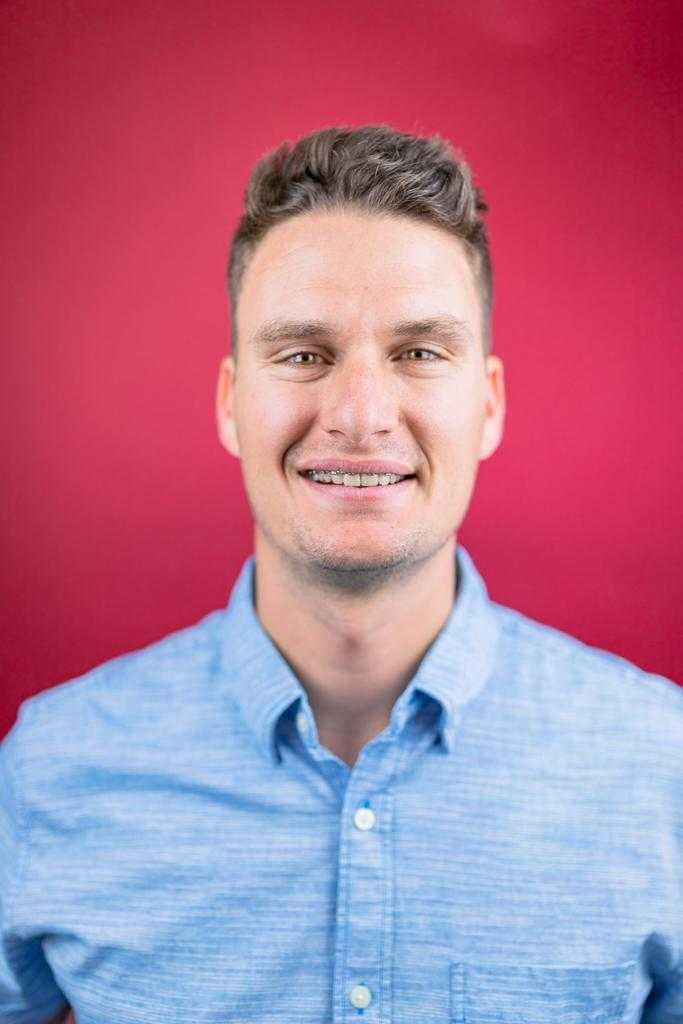
Man, I remember what it was like when I first got started in real estate. I’d wake up every morning full of confidence and courage, ready to attack the day. I had a focused plan and I knew exactly how to find smoking hot real estate deals, and quickly turn those deals for huge profits.
Quite the opposite. In fact my reality was fear, doubt, overwhelm, and frustration. I worked my butt off but I was drowning in bad advice from gurus, and strategies that either didn’t work or just weren’t congruent with who I am.
Five years later and I’ve done over 300 real estate deals and have generated millions. Over the years I’ve made a lot of mistakes and have learned a lot of lessons (sometimes the hard way), and I’ve built a dream real estate business…and I’d love to show you how you can too.
Love the show? Subscribe, rate, review, and share!
______________________________________
To listen to the EXTRA portion of this show go to RealEstateInvestingForWomenExtra.com
To see this program in video:
Search on Roku for Real Estate Investing 4 Women or go to this link: https://blissfulinvestor.com/biroku
On YouTube go to Real Estate Investing for Women
Moneeka Sawyer is often described as one of the most blissful people you will ever meet. She has been investing in Real Estate for over 20 years, so has been through all the different cycles of the market. Still, she has turned $10,000 into over $5,000,000, working only 5-10 hours per MONTH with very little stress.
While building her multi-million dollar business, she has traveled to over 55 countries, dances every single day, supports causes that are important to her, and spends lots of time with her husband of over 20 years.
She is the international best-selling author of the multiple award-winning books “Choose Bliss: The Power and Practice of Joy and Contentment” and “Real Estate Investing for Women: Expert Conversations to Increase Wealth and Happiness the Blissful Way.”
Moneeka has been featured on stages including Carnegie Hall and Nasdaq, radio, podcasts such as Achieve Your Goals with Hal Elrod, and TV stations including ABC, CBS, FOX, and the CW, impacting over 150 million people.


